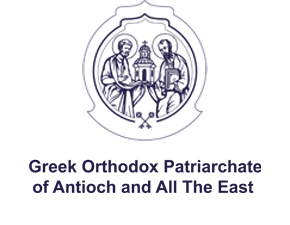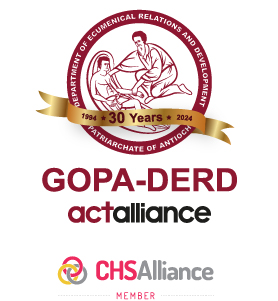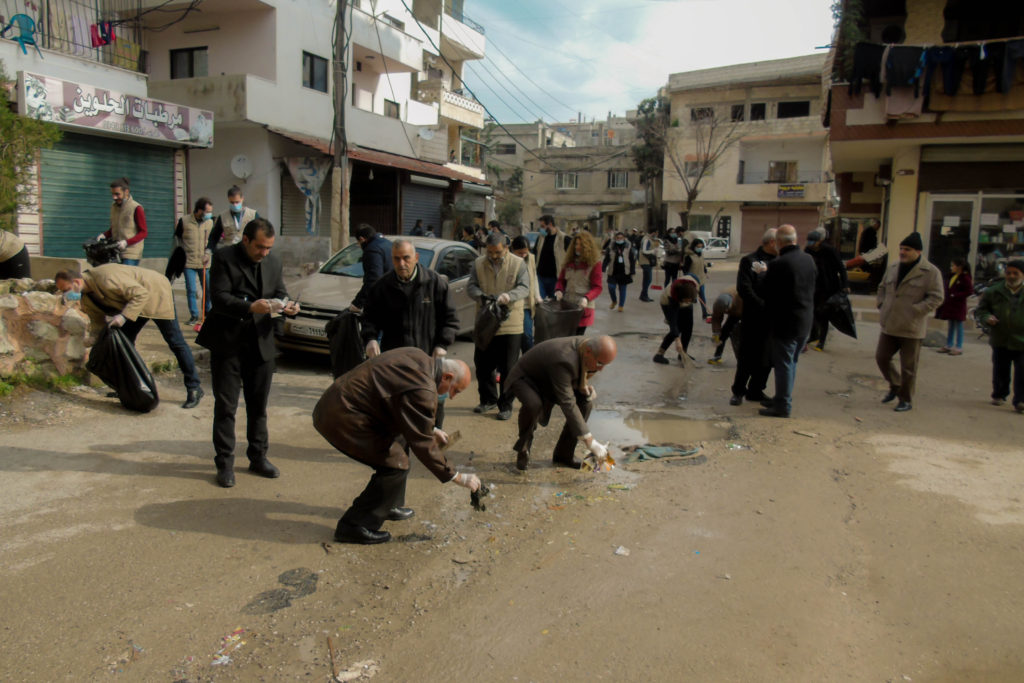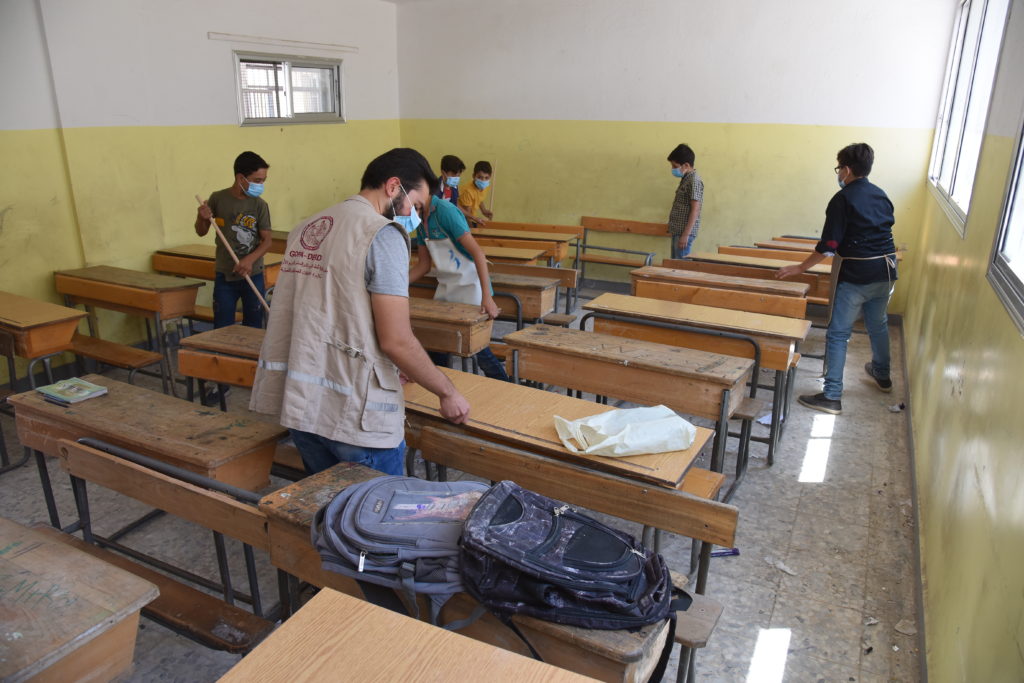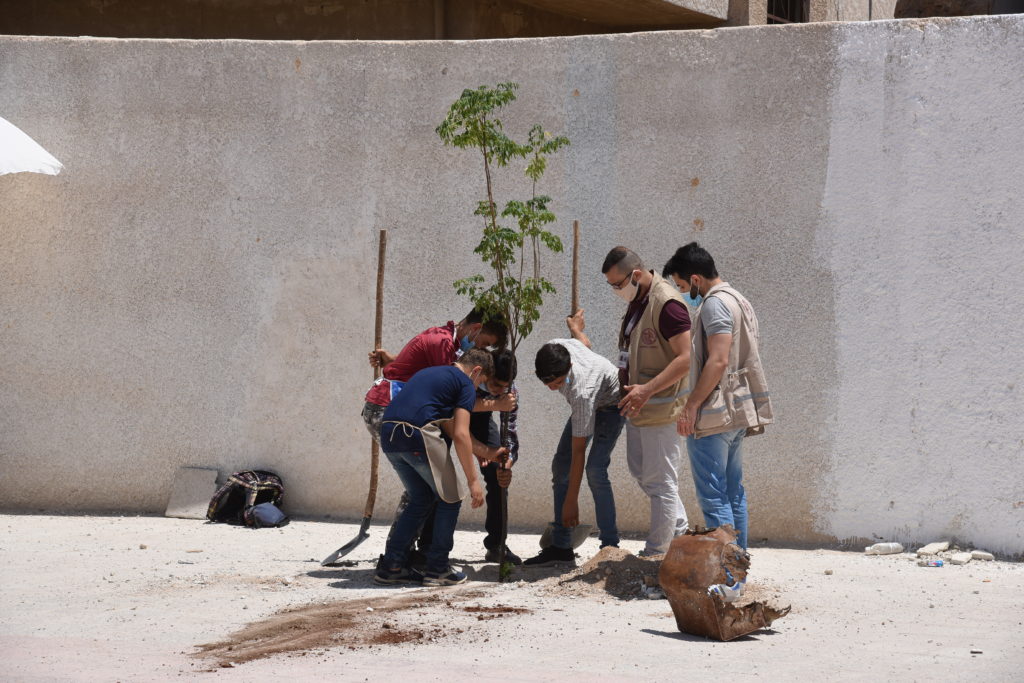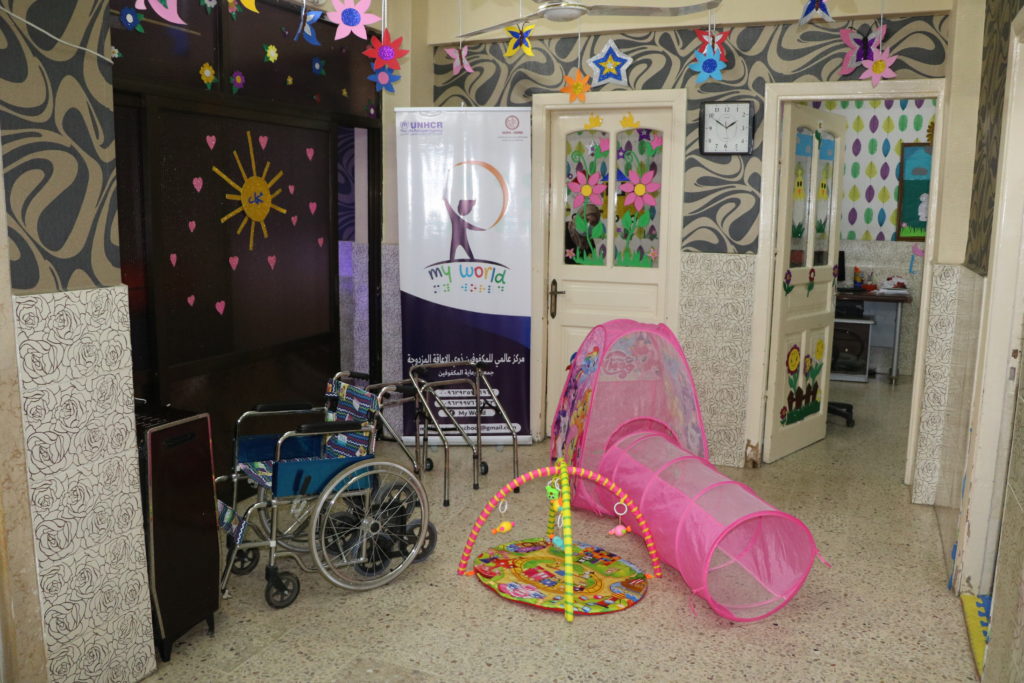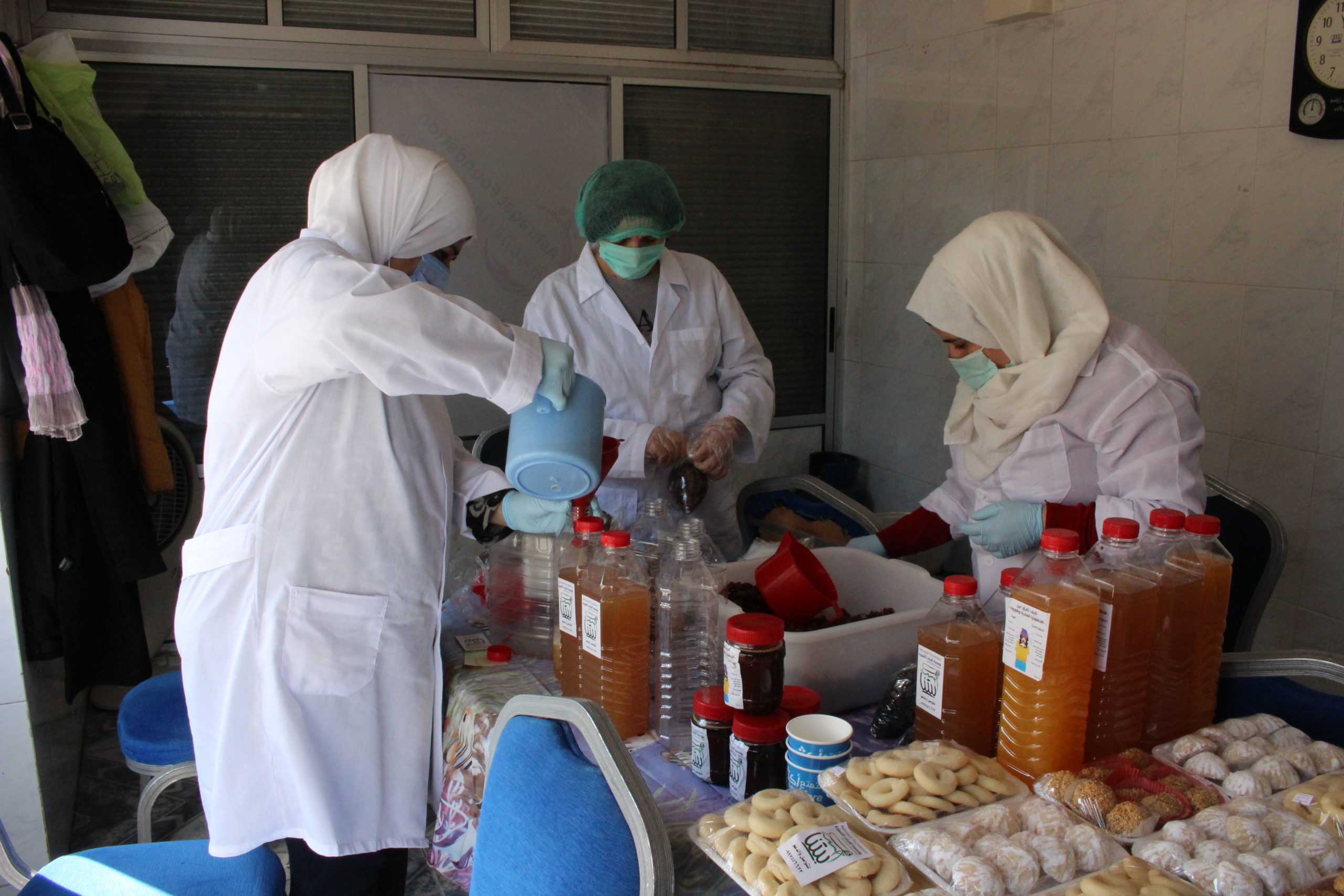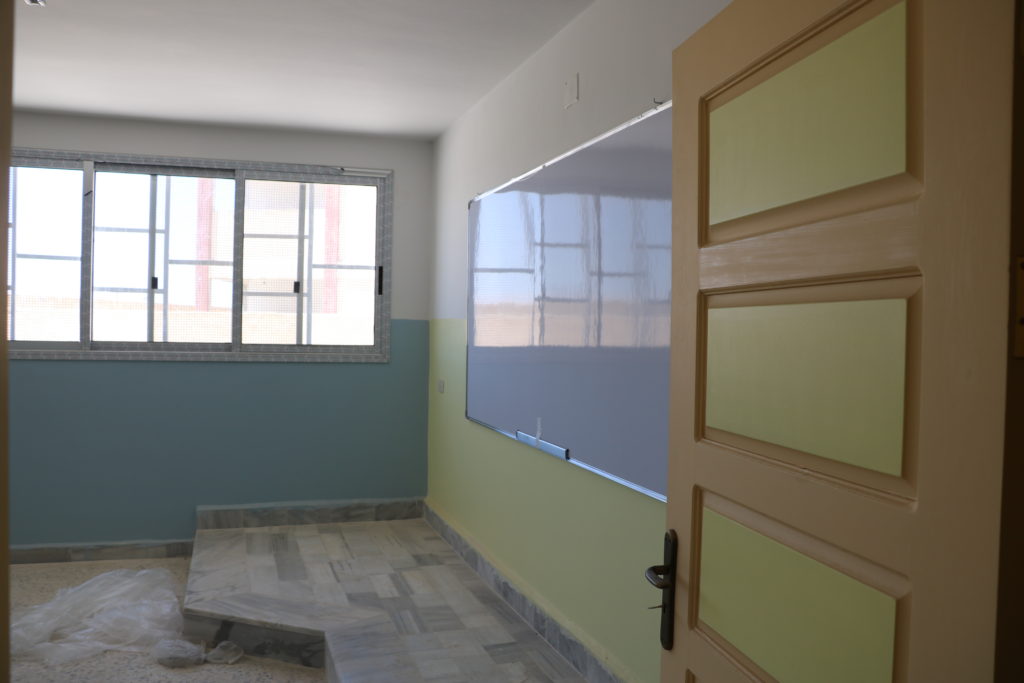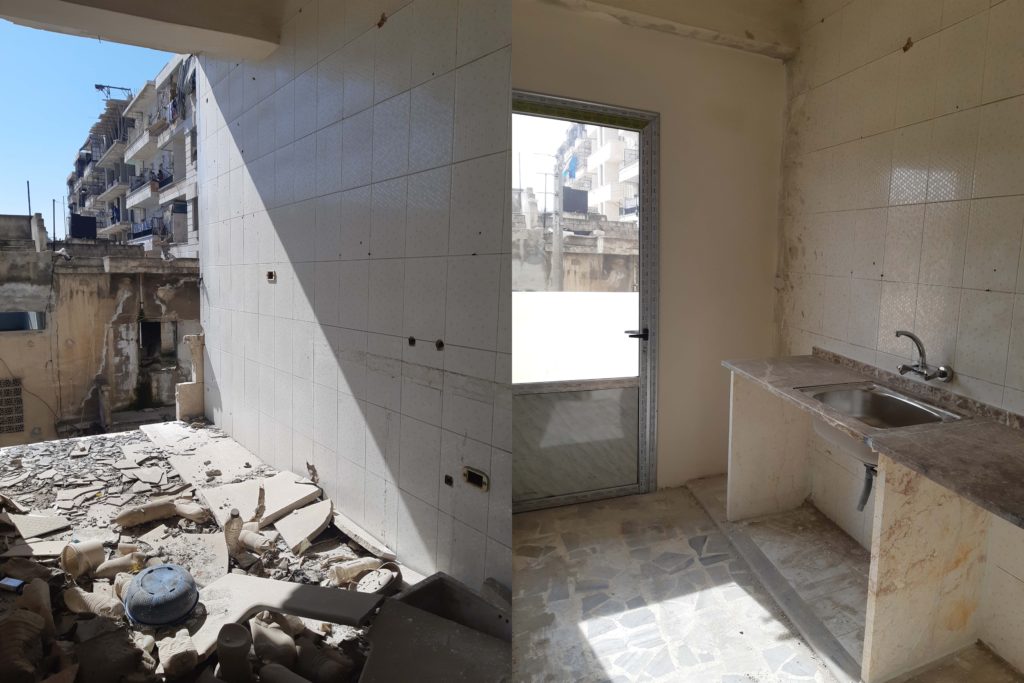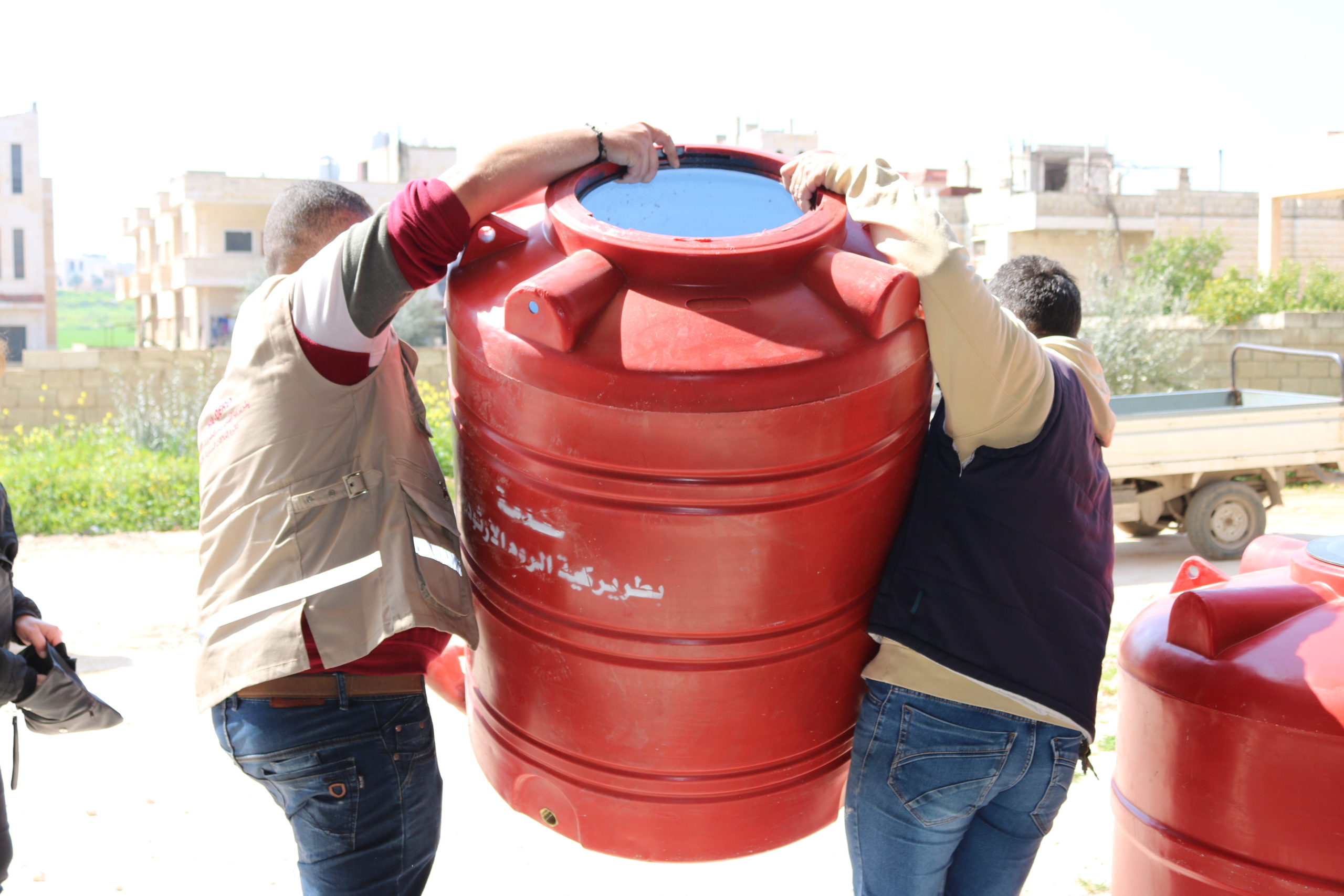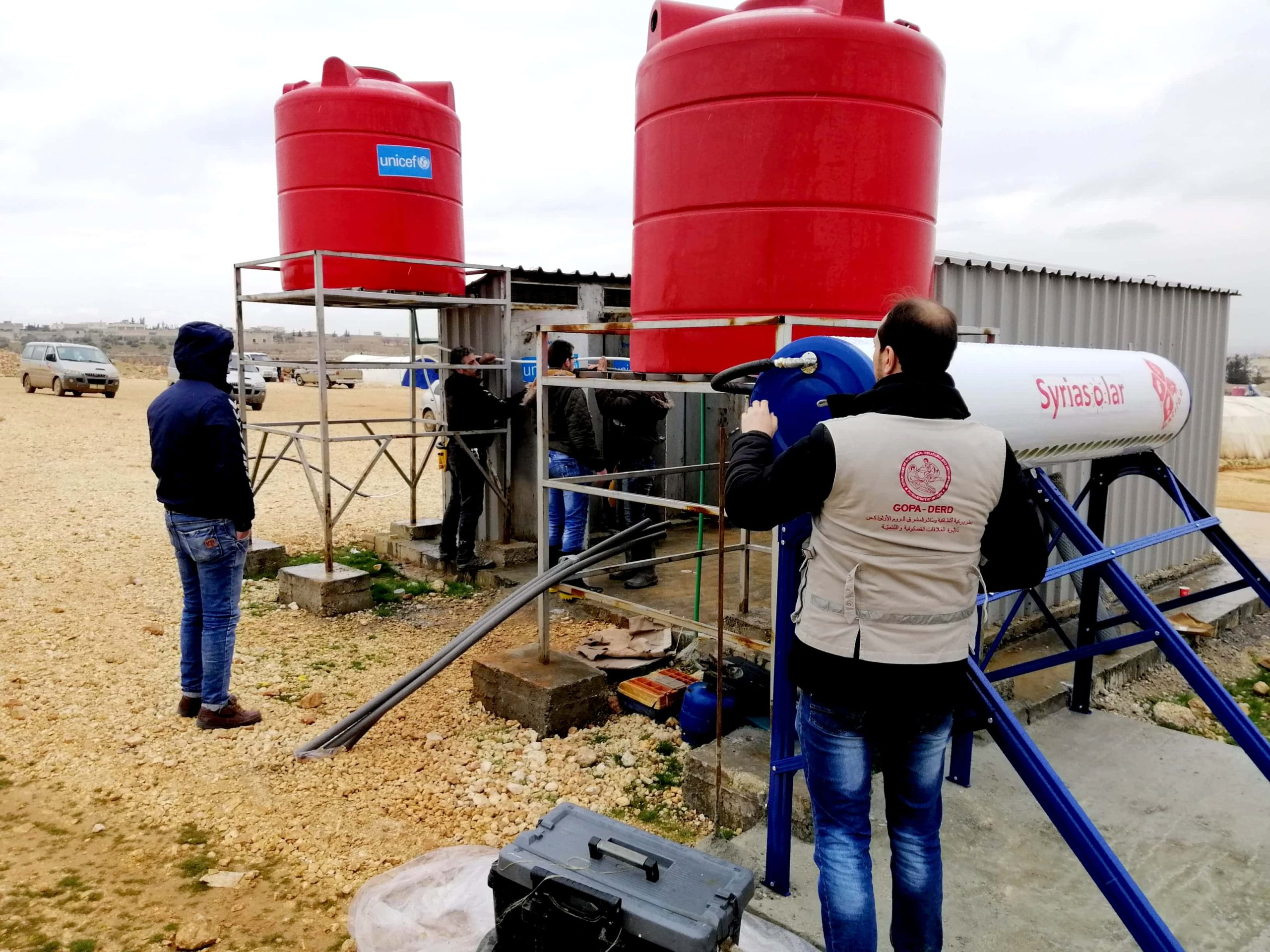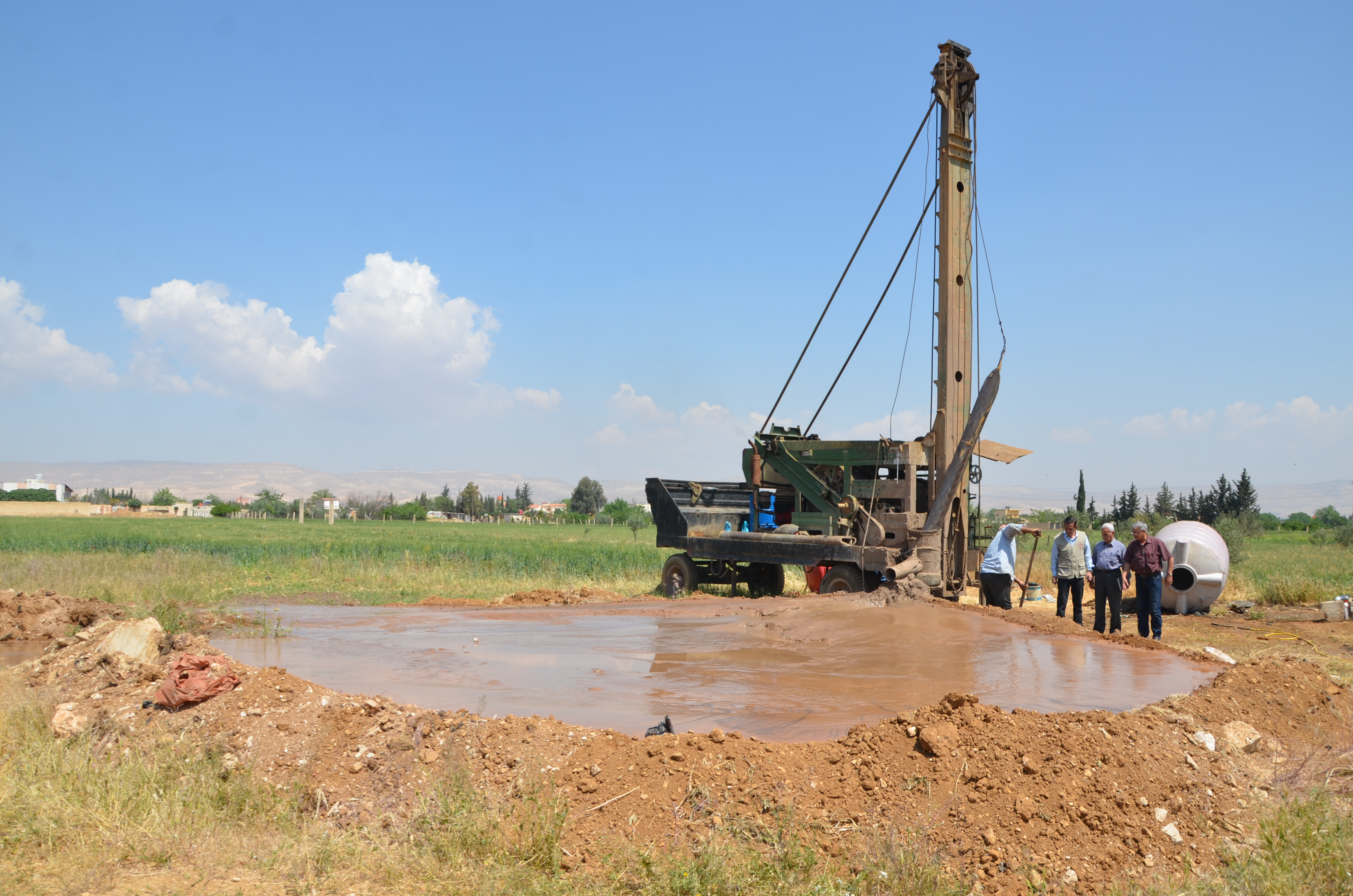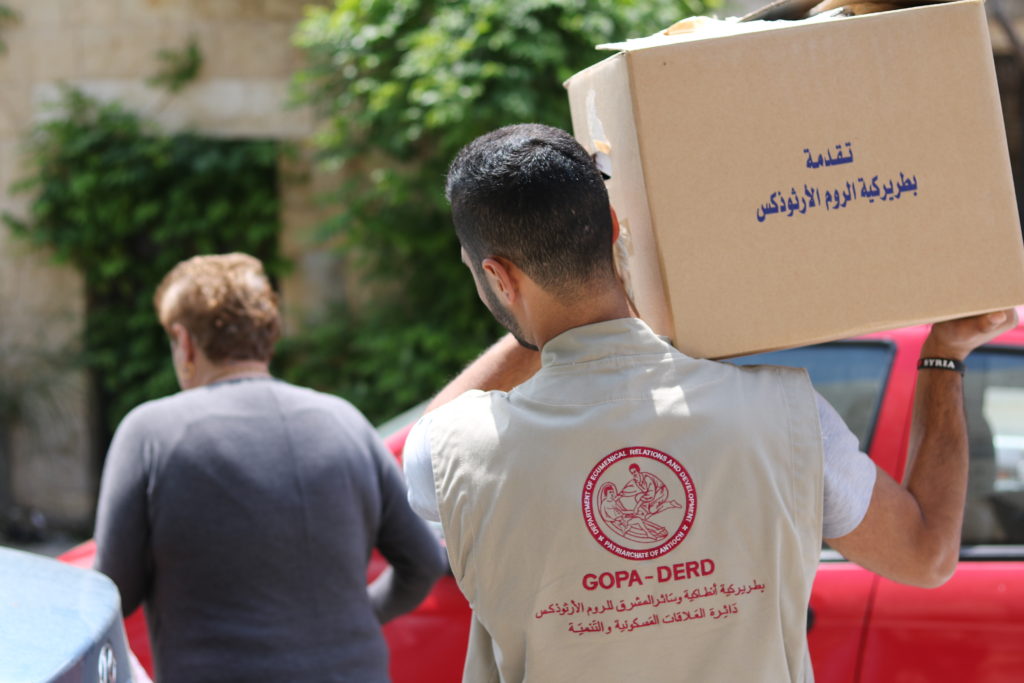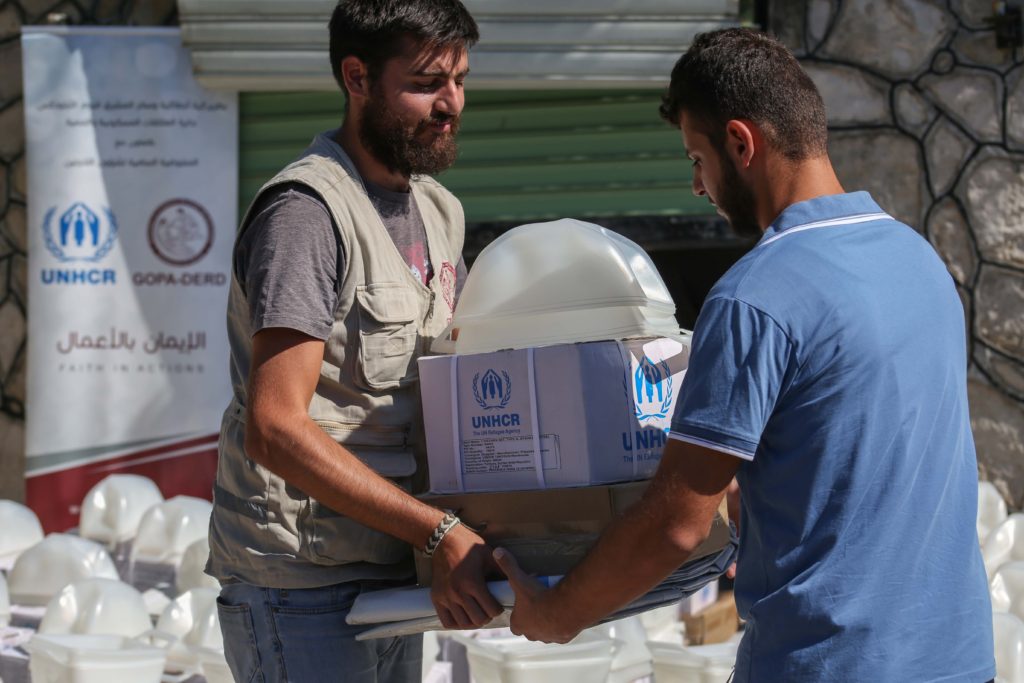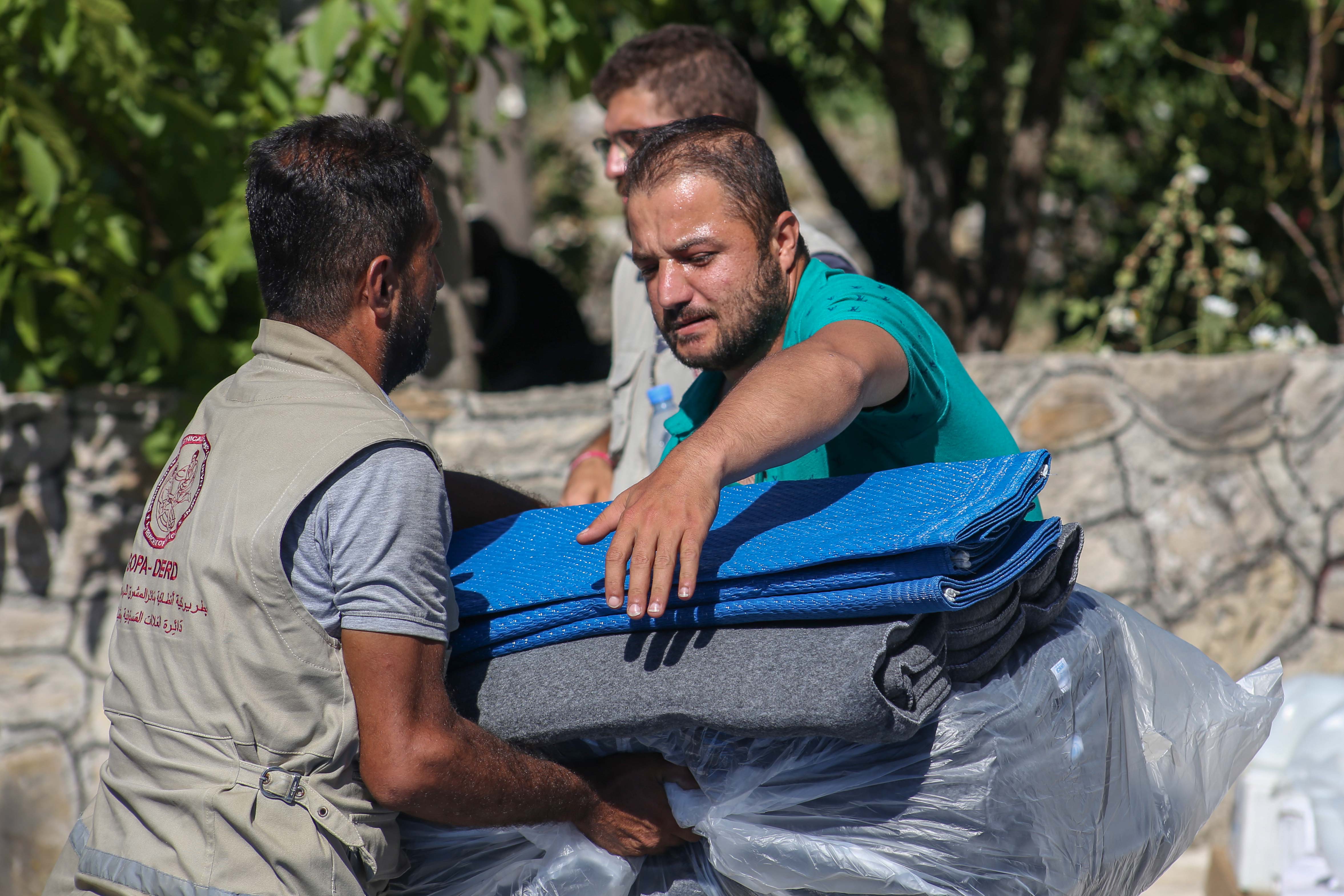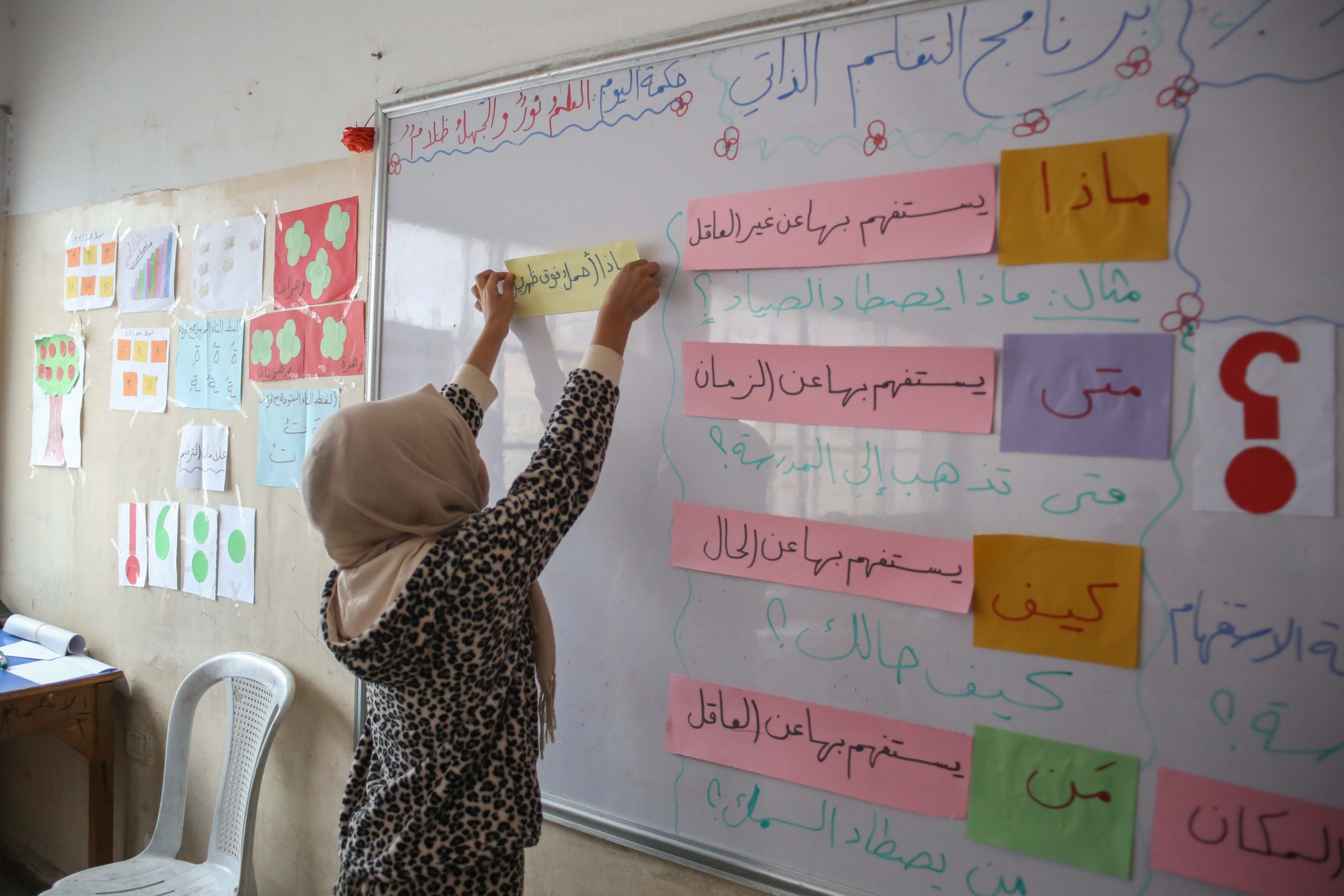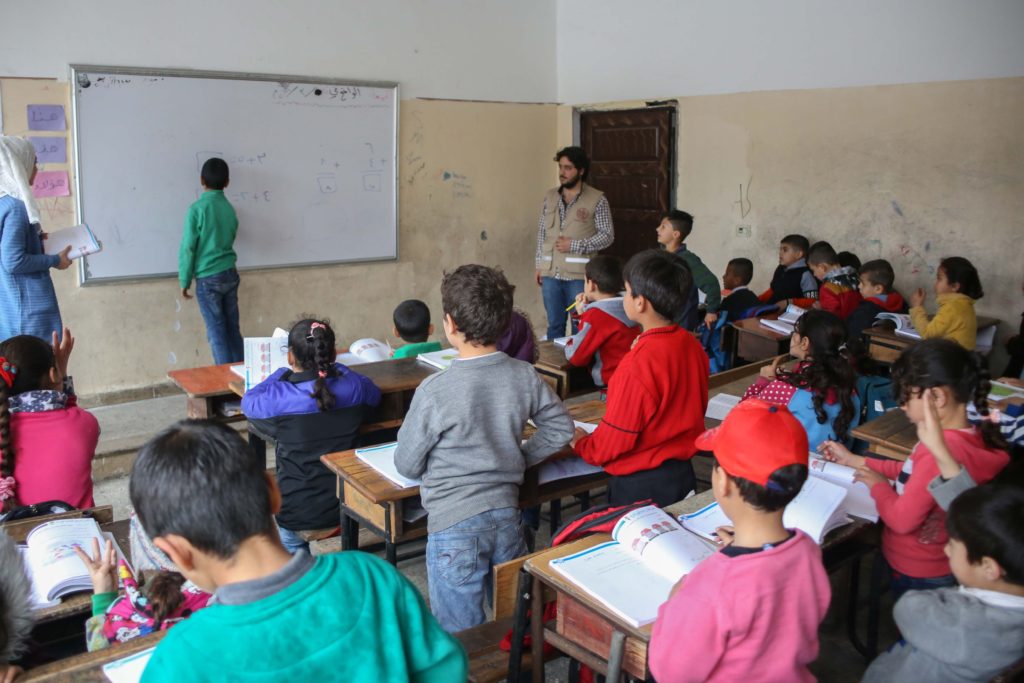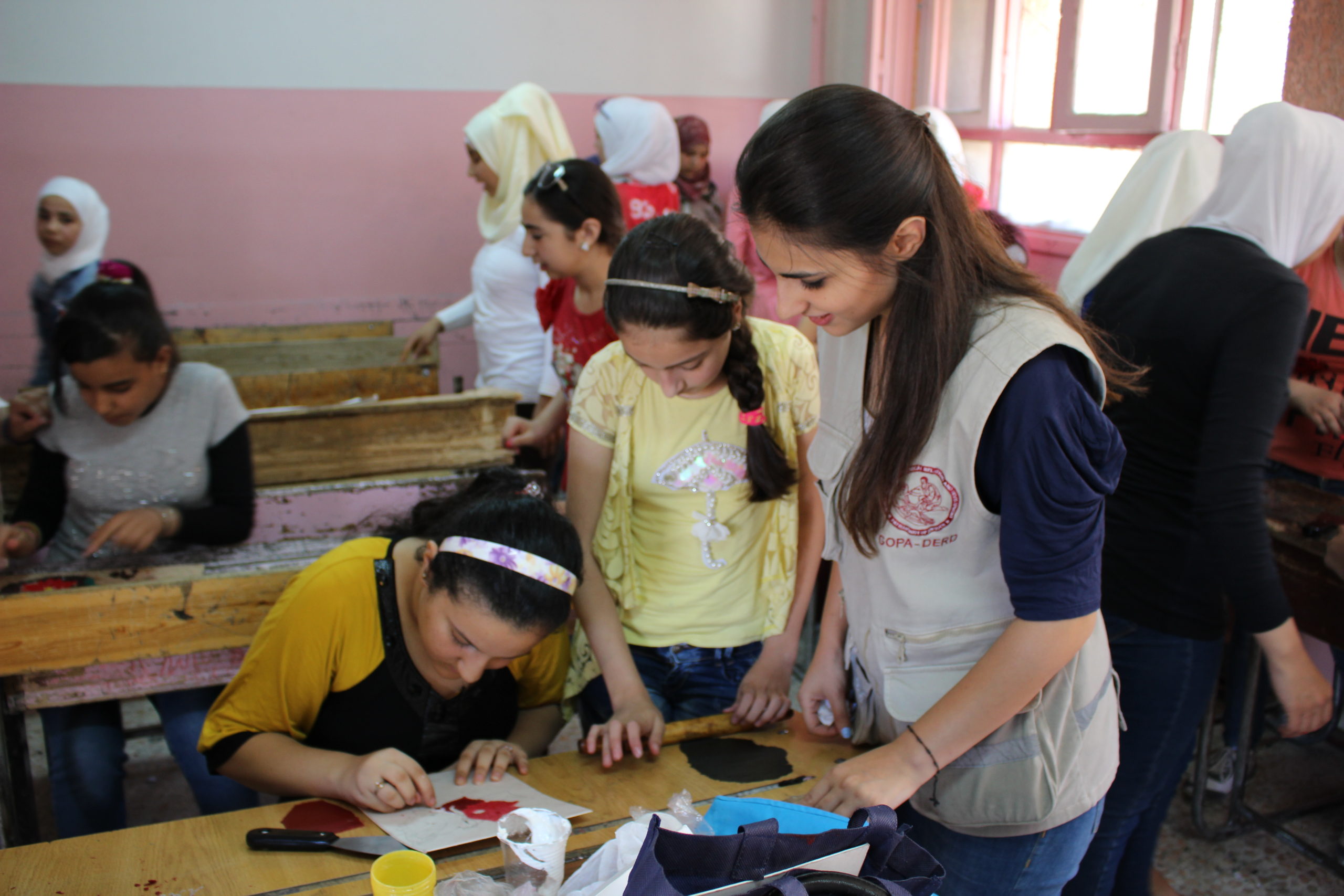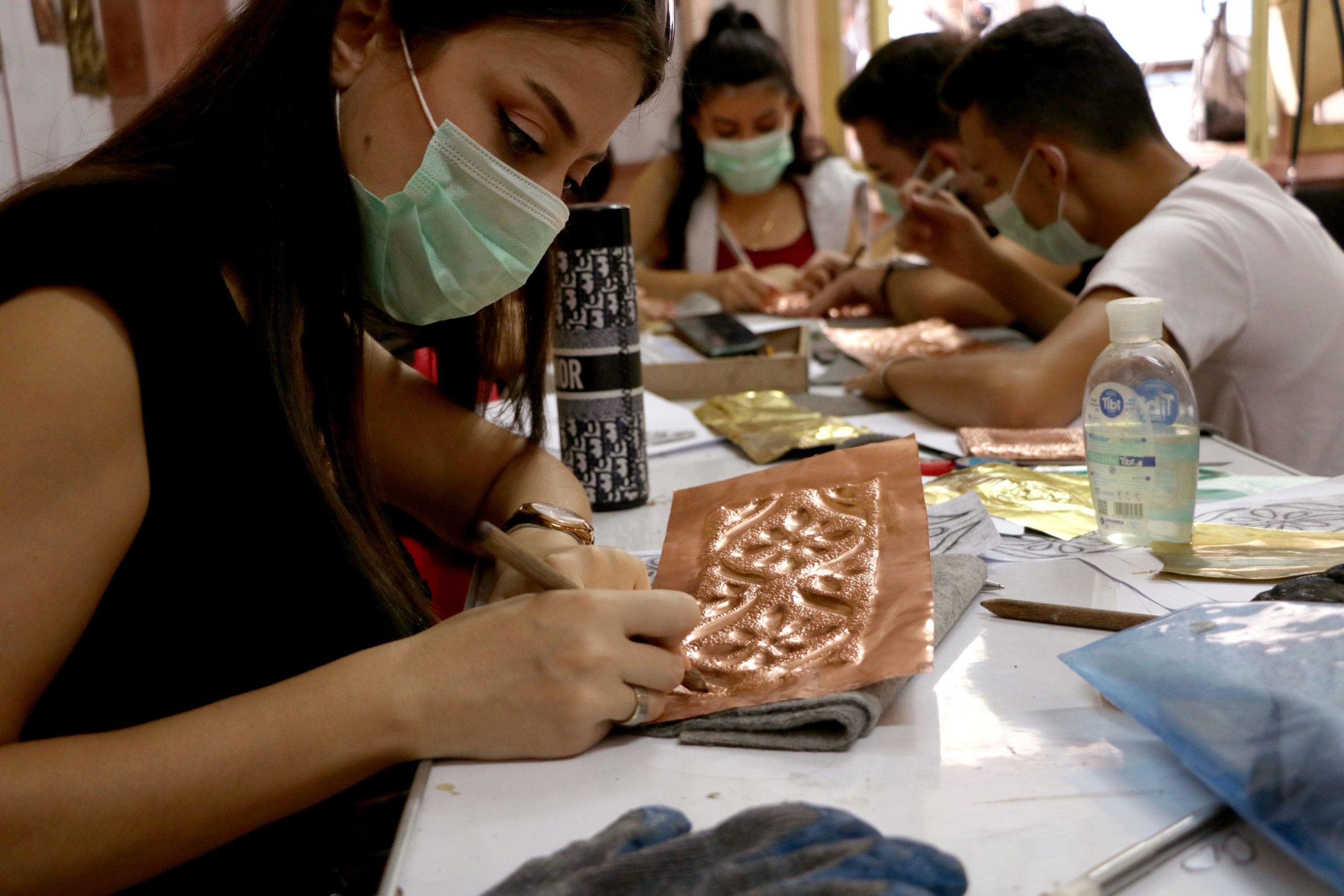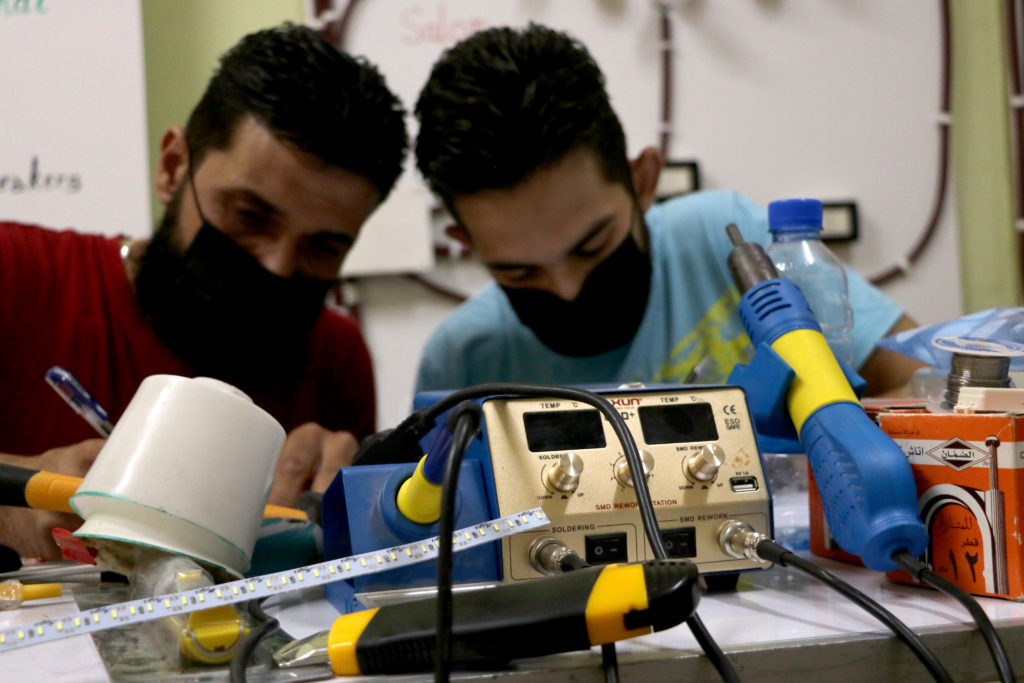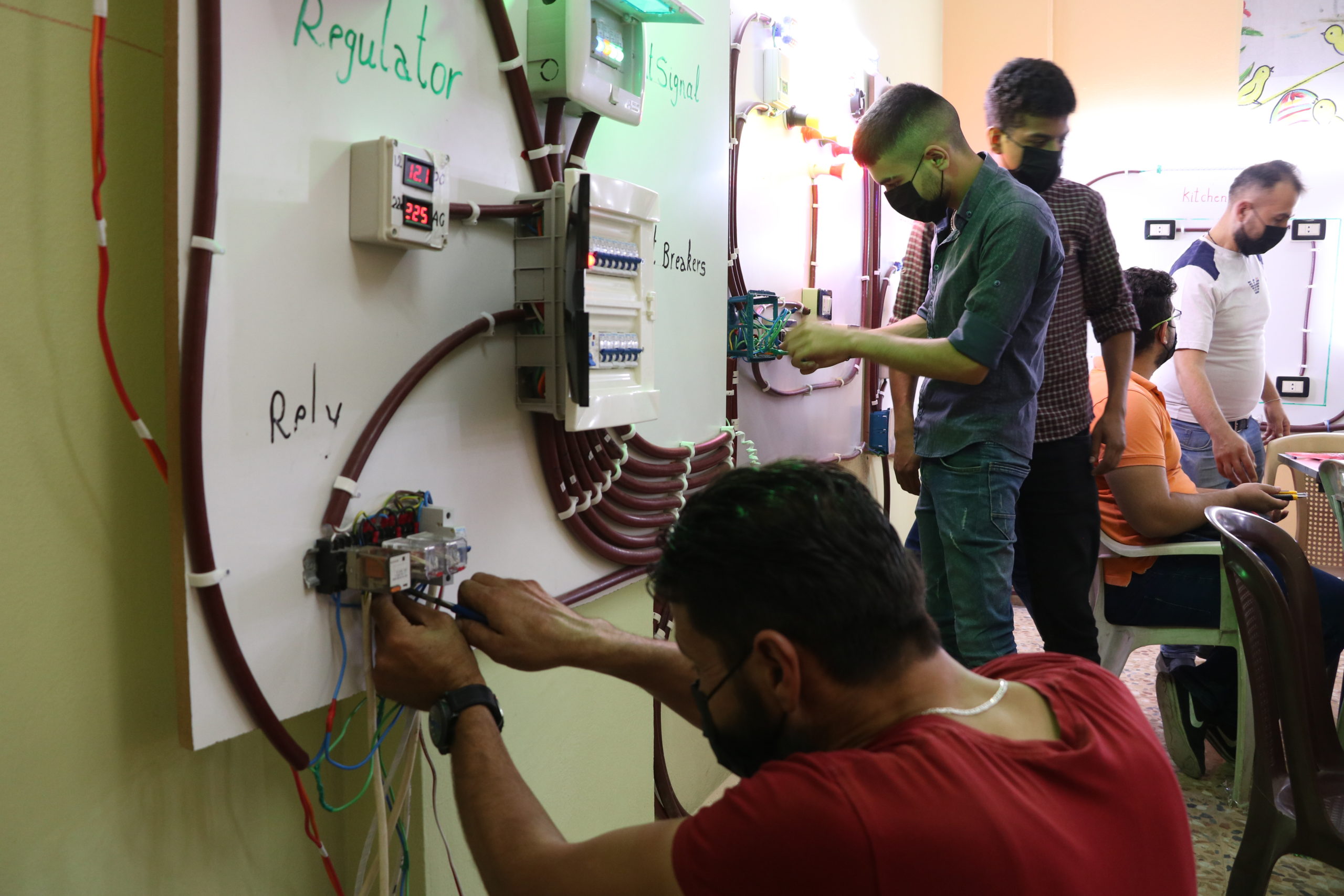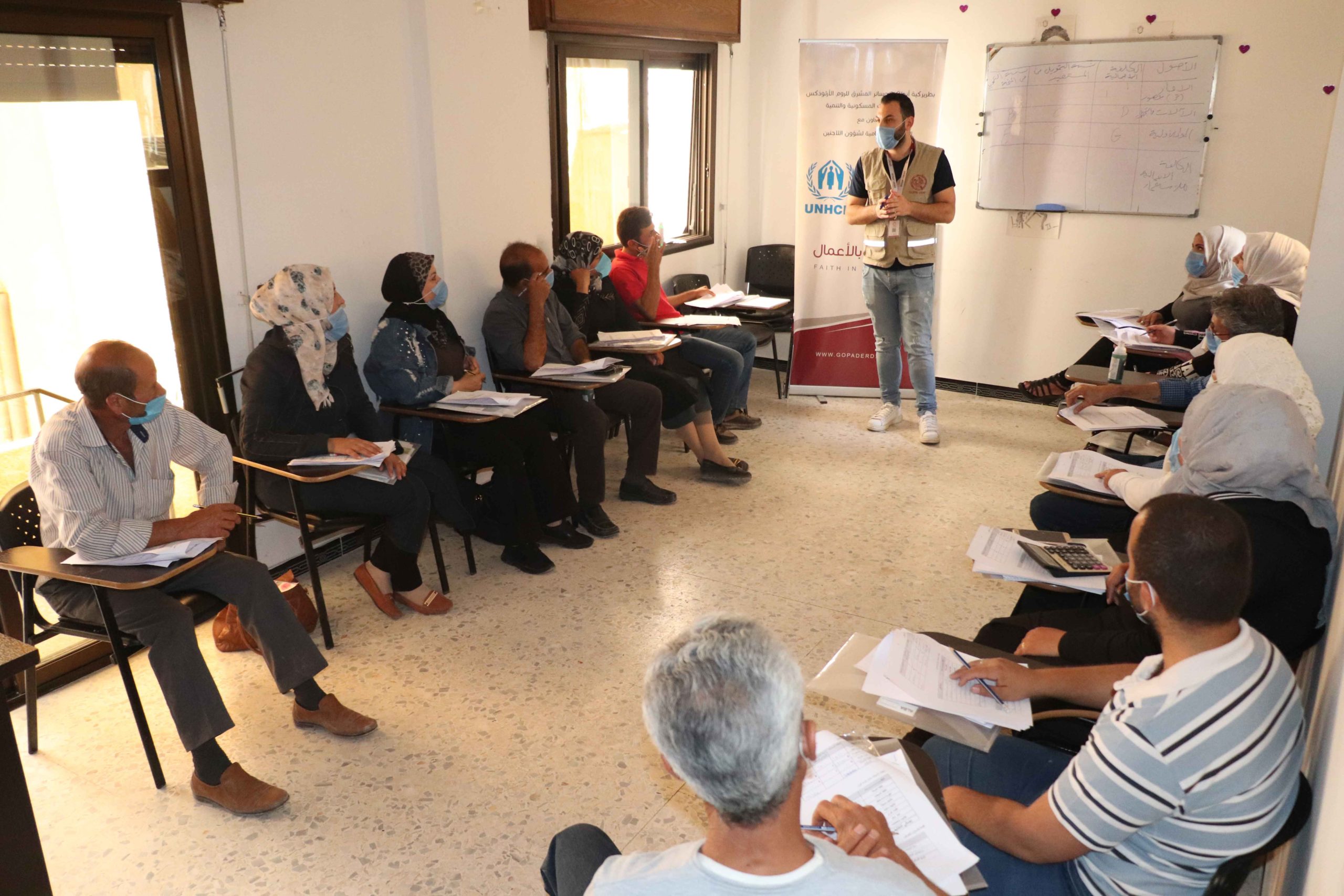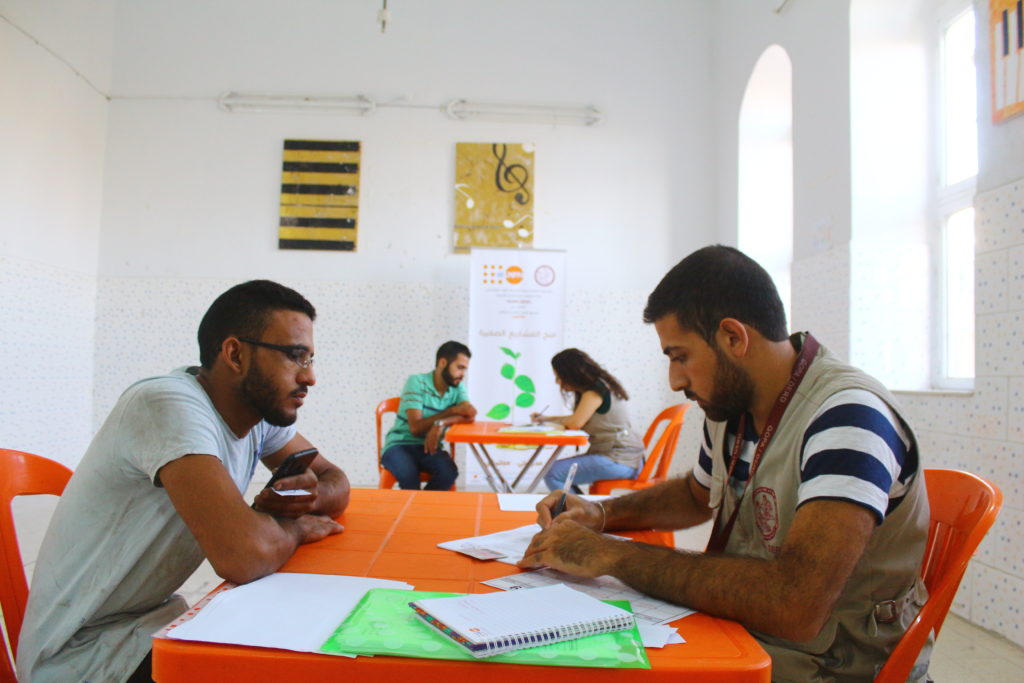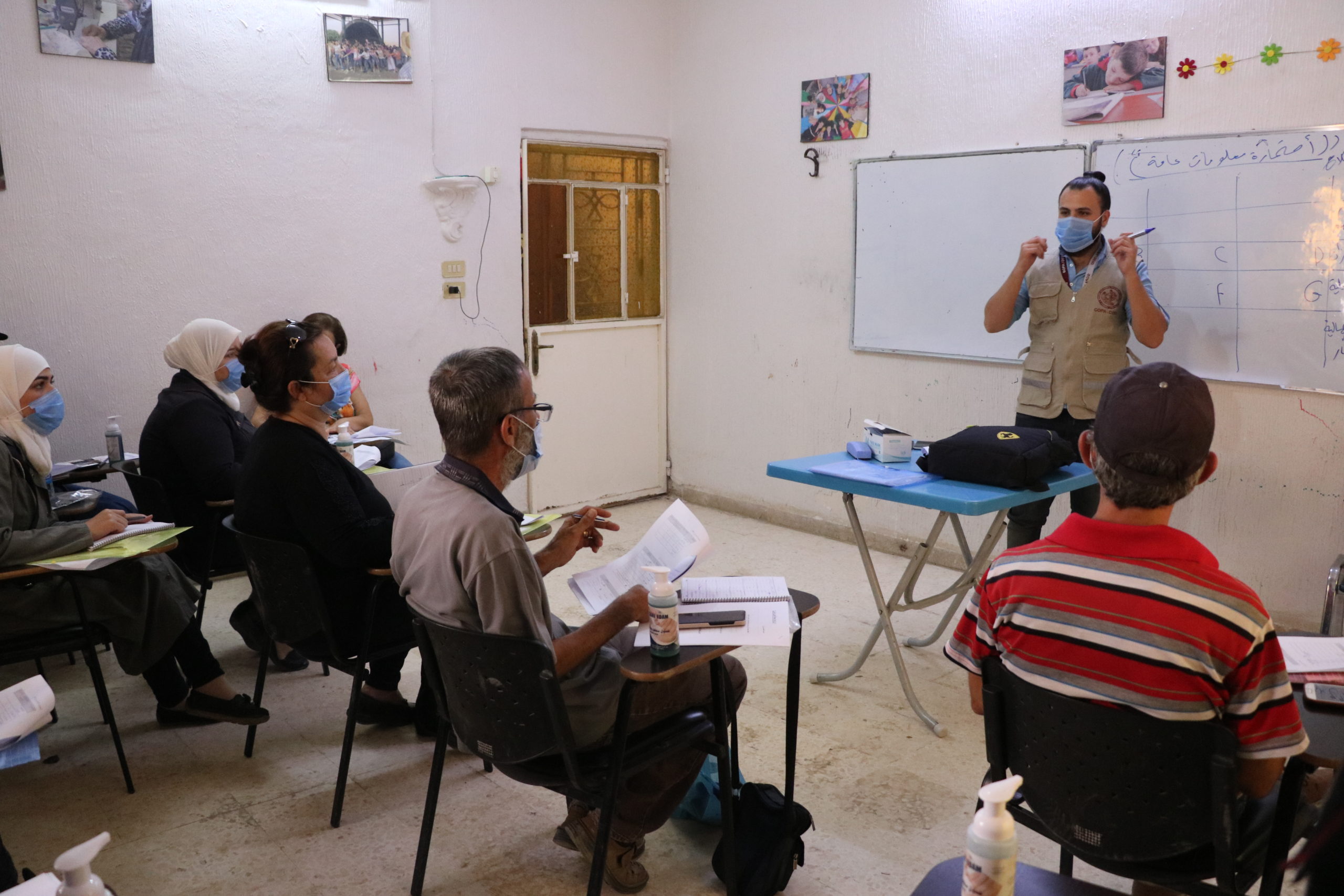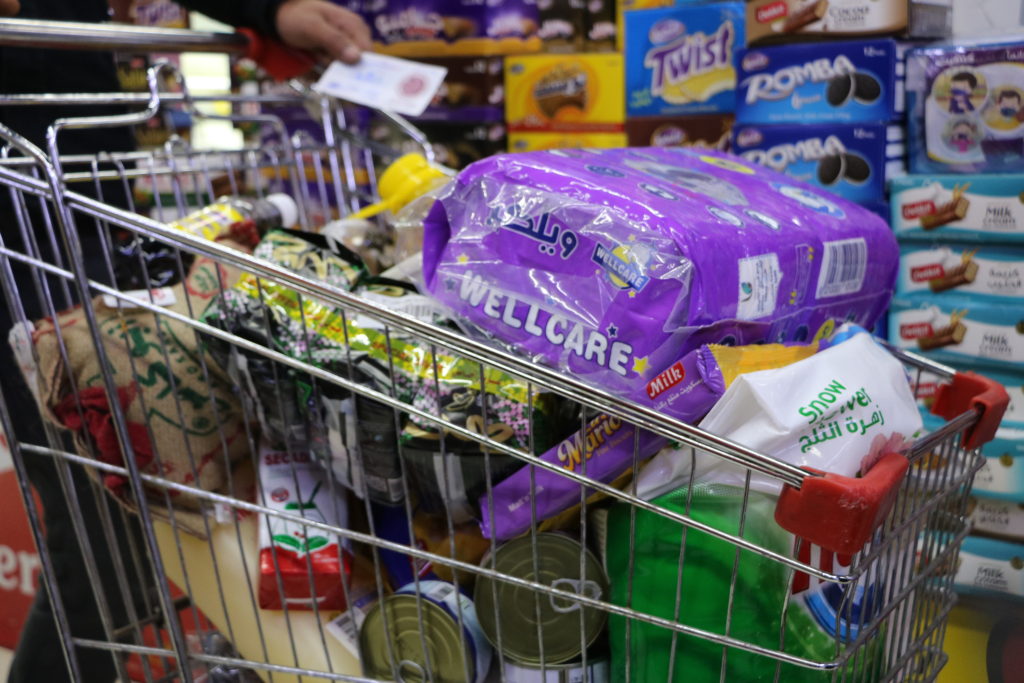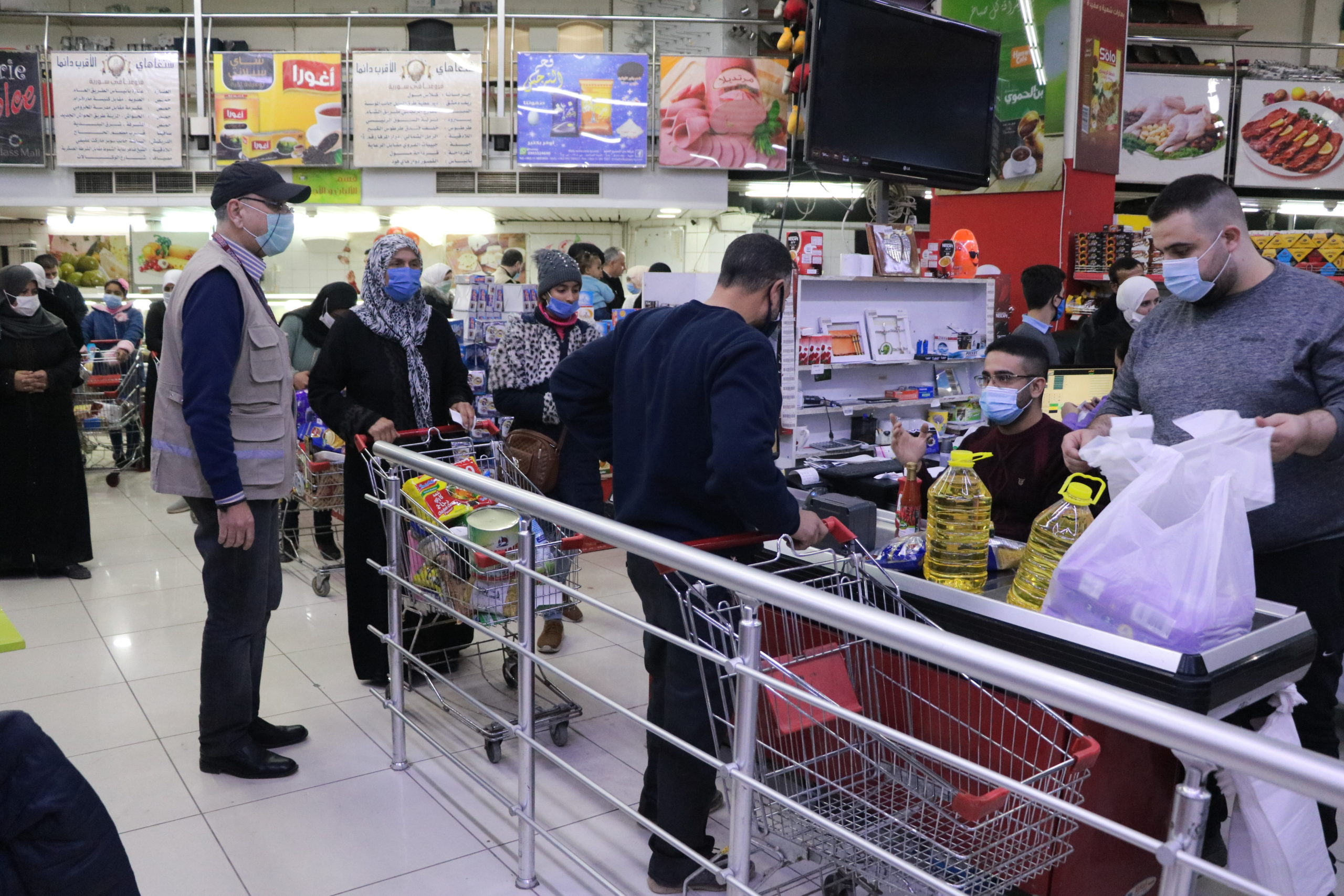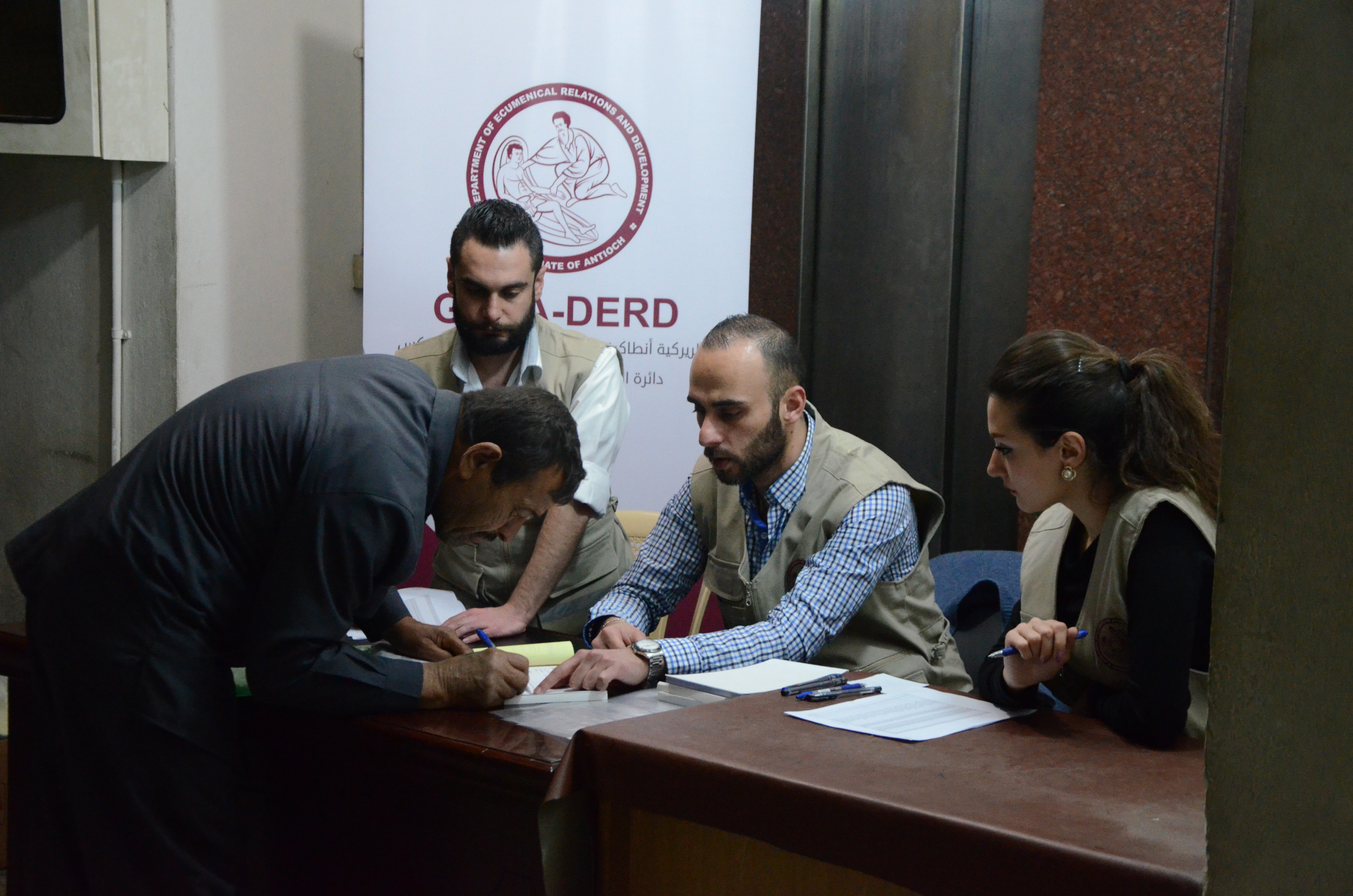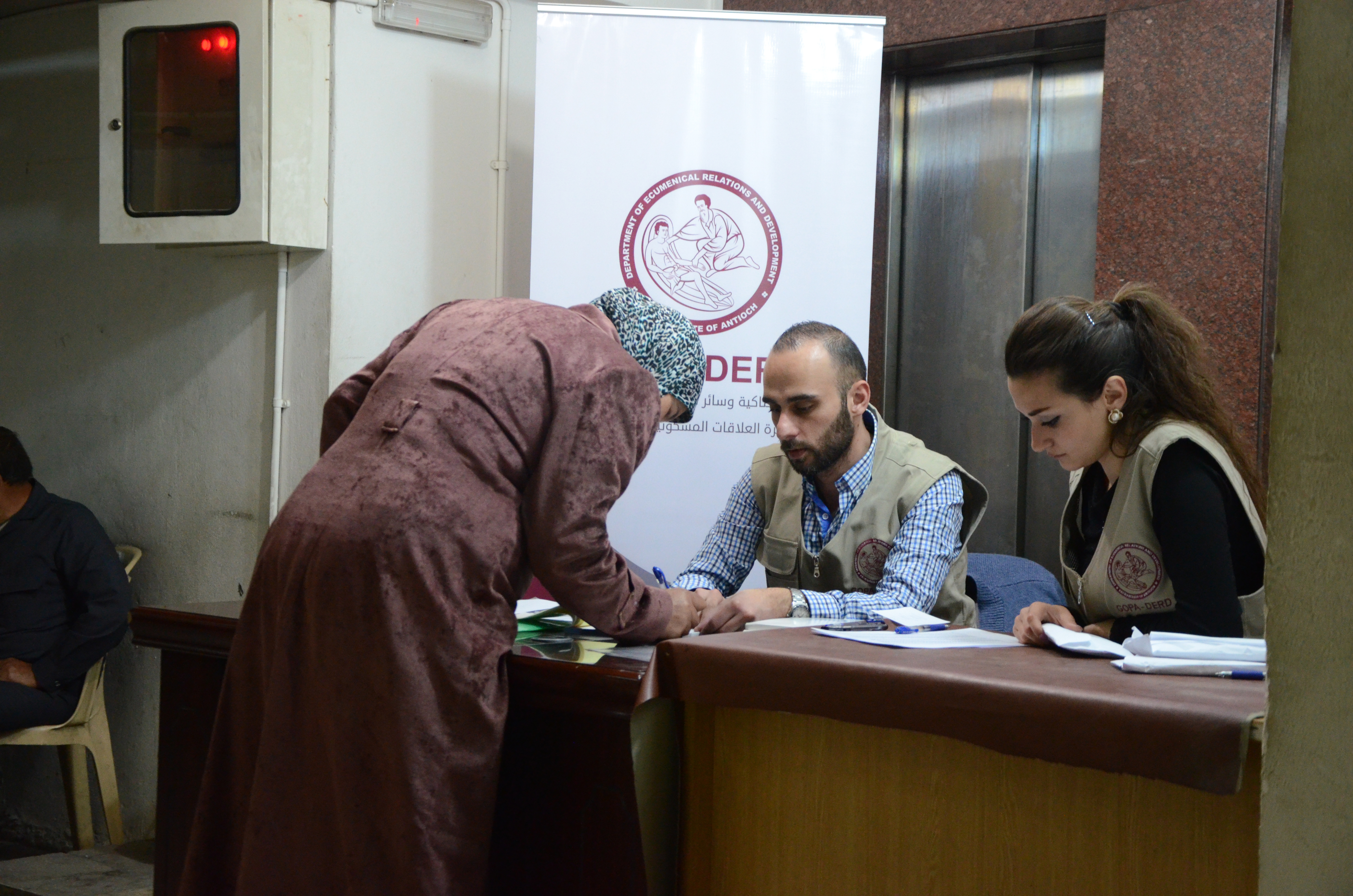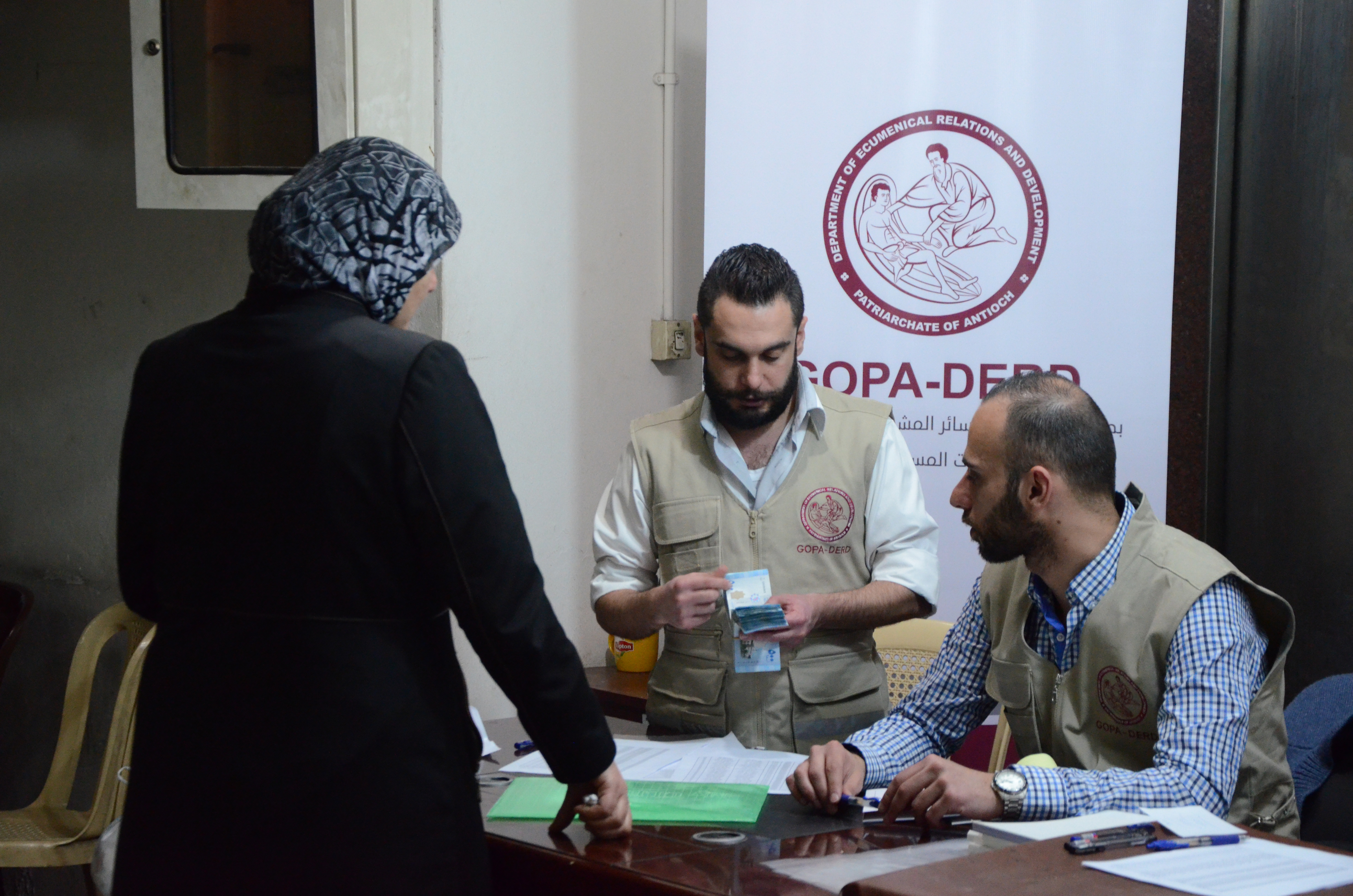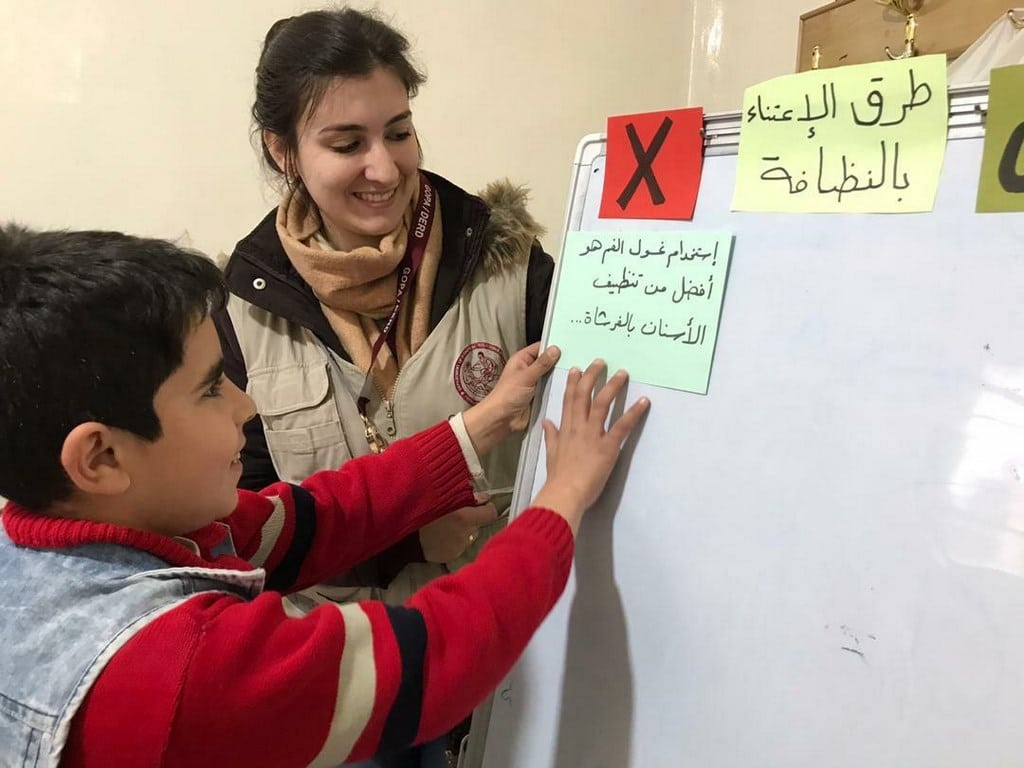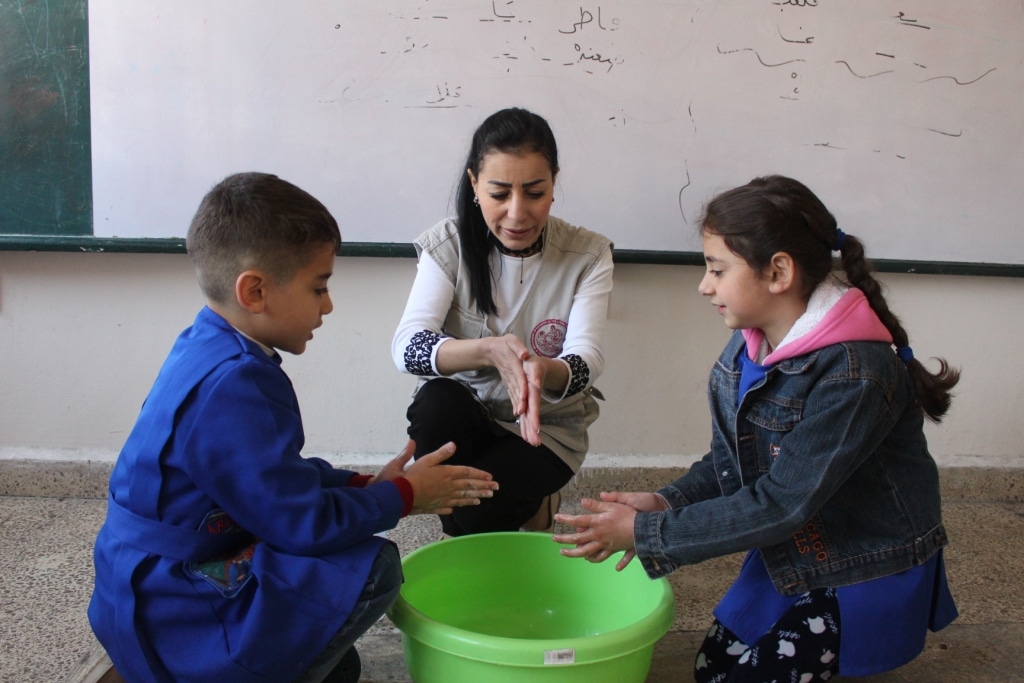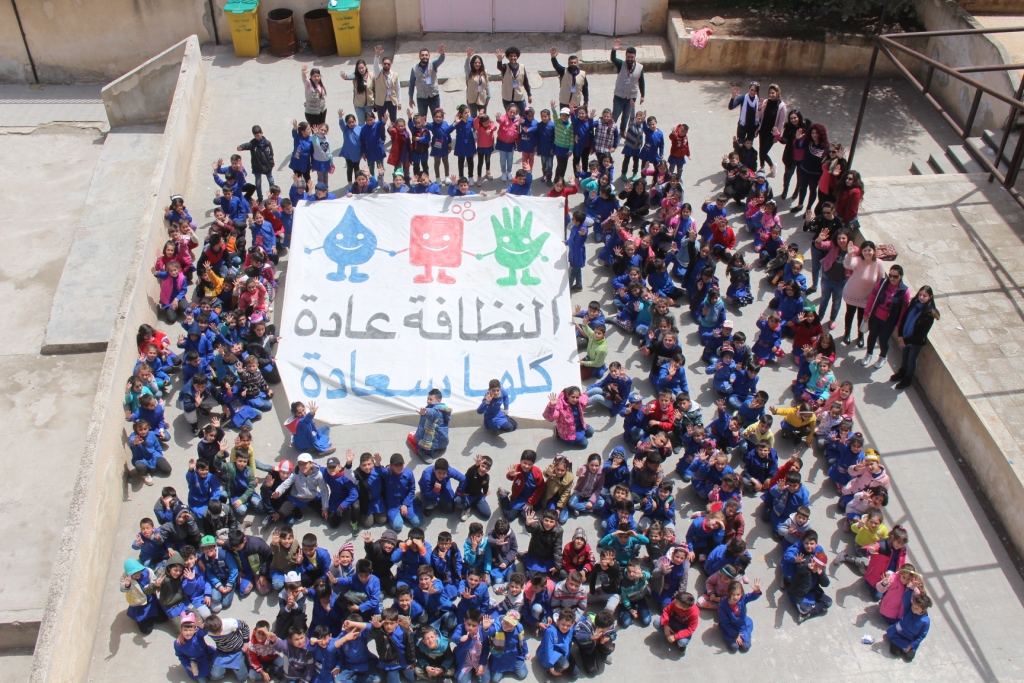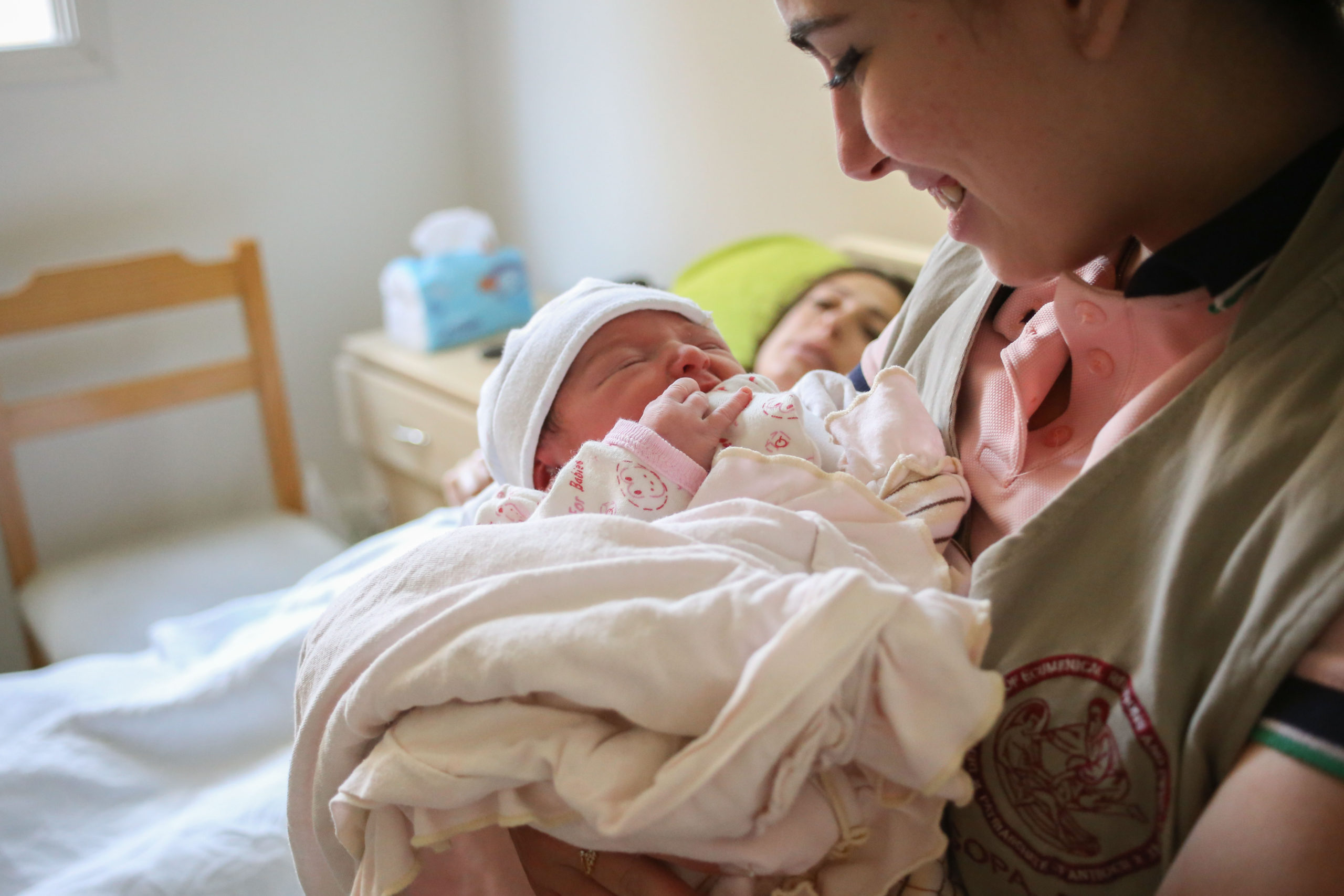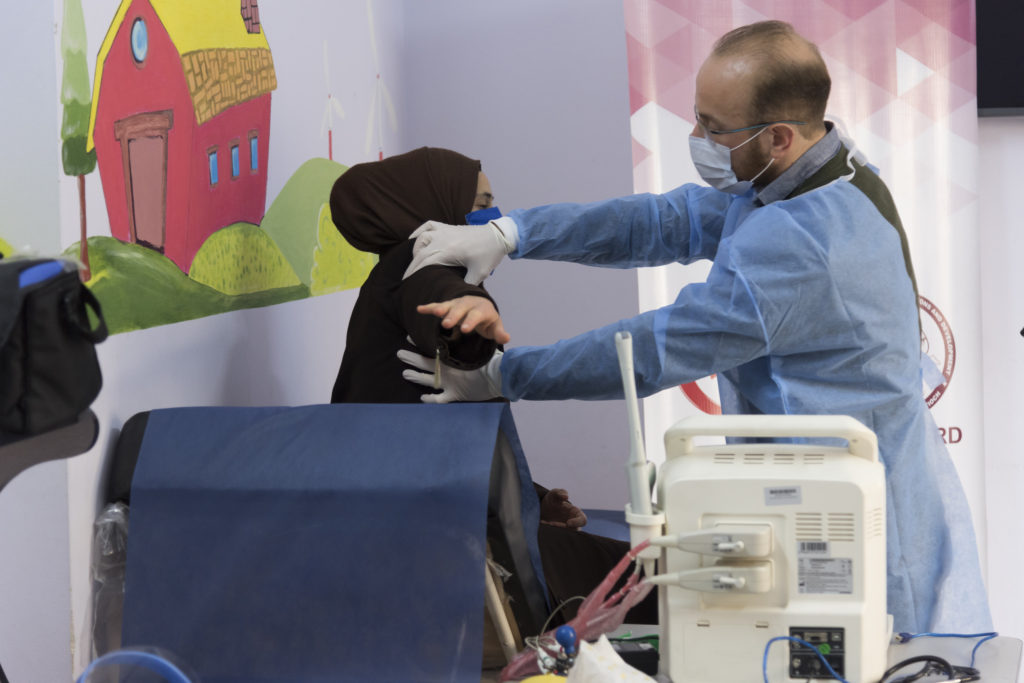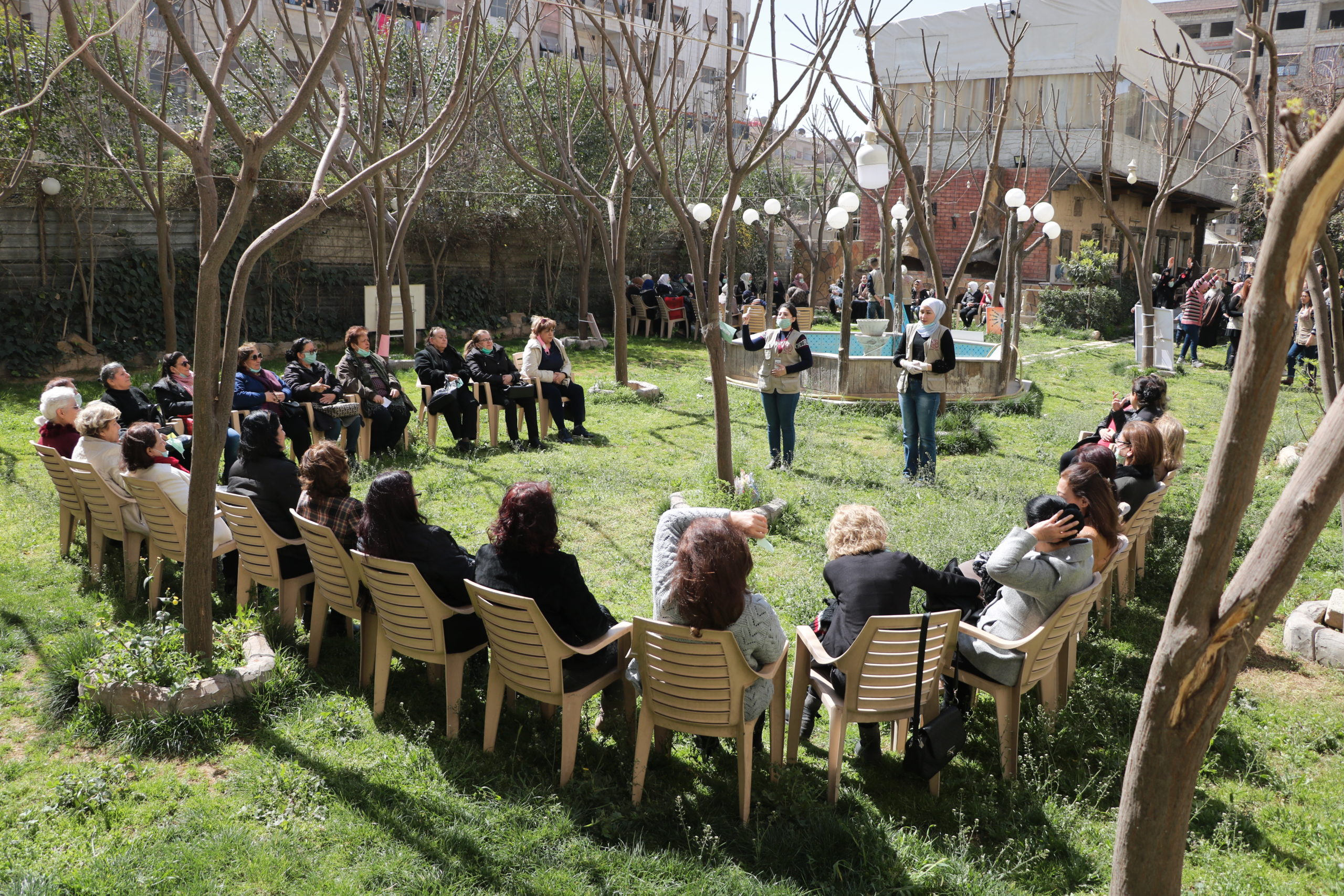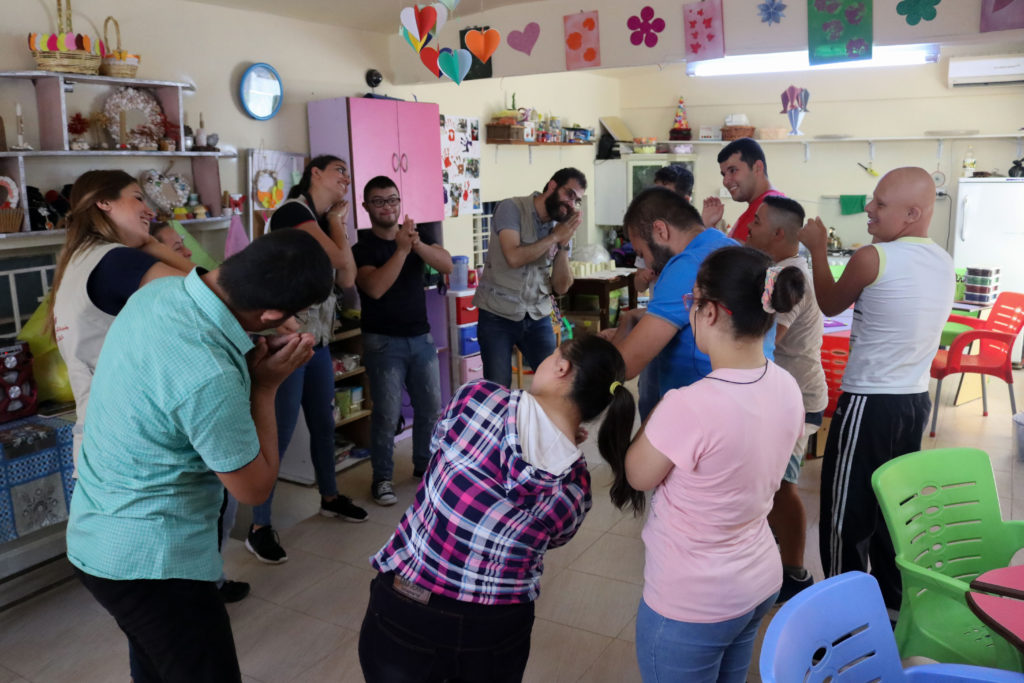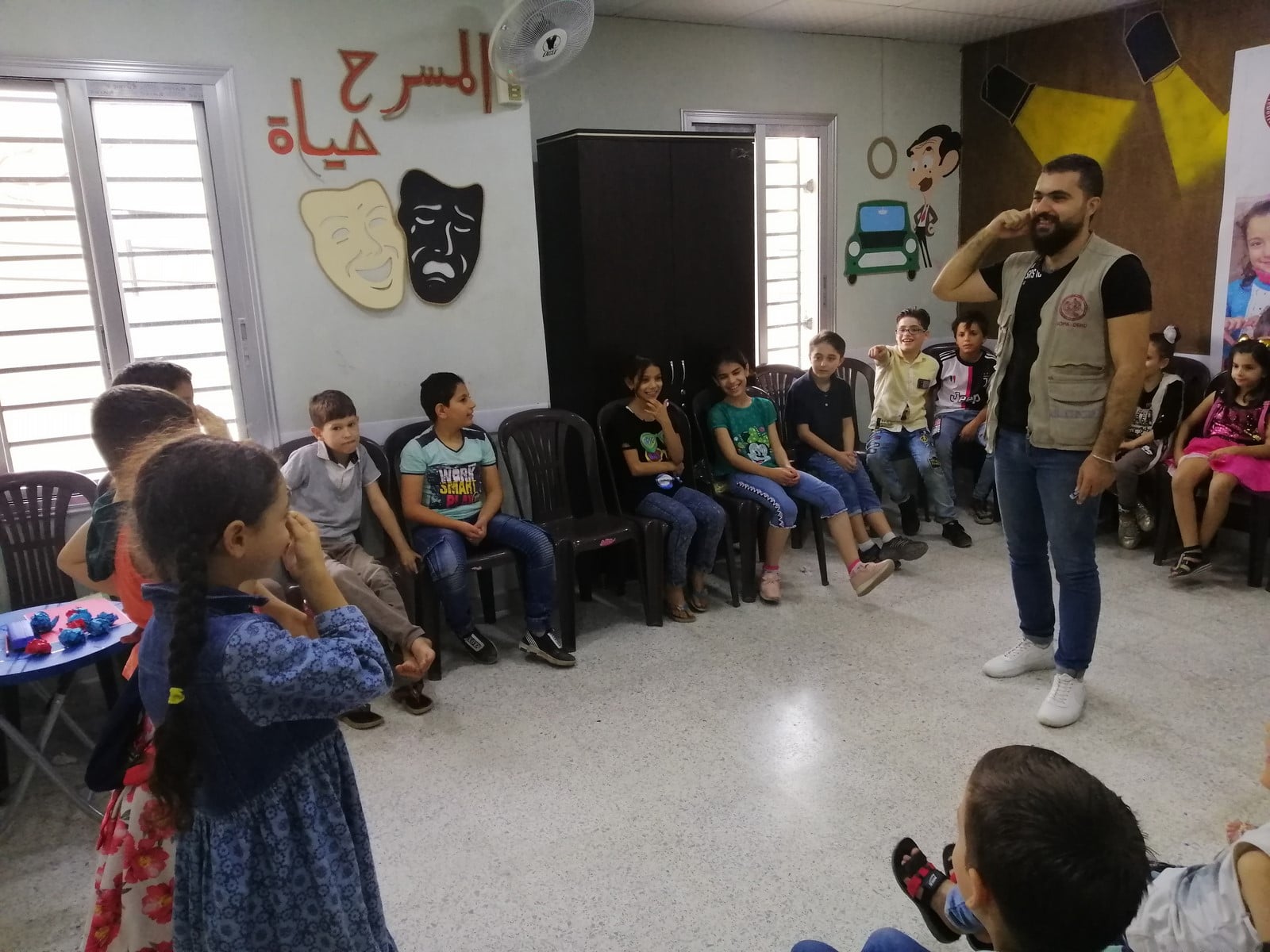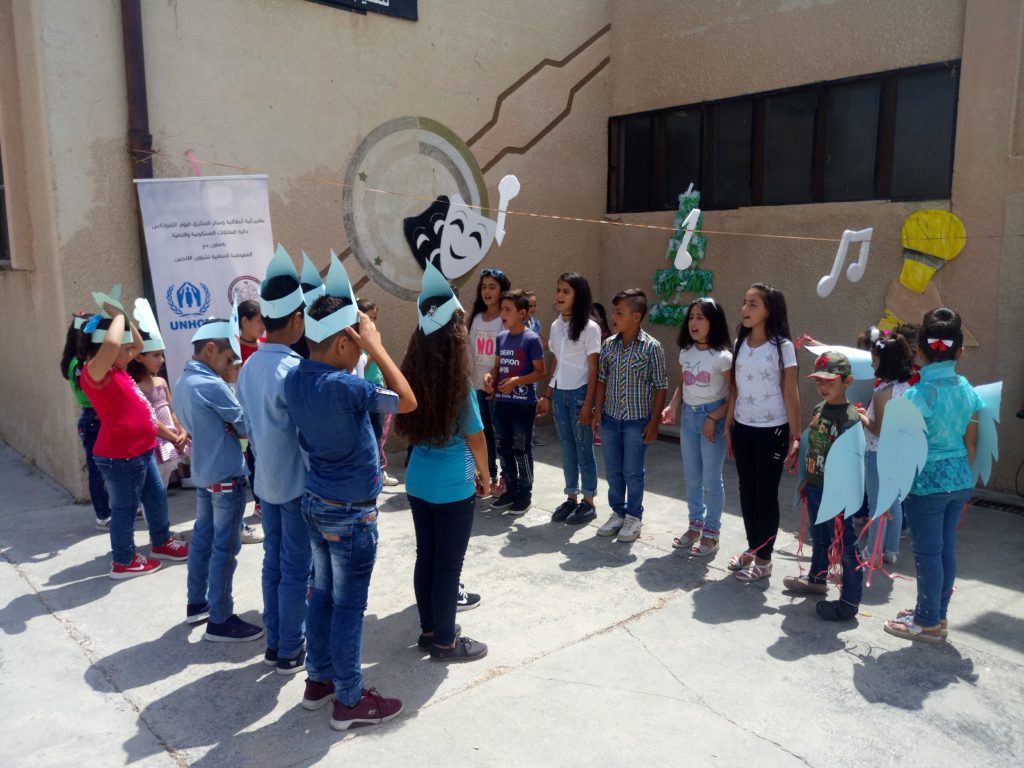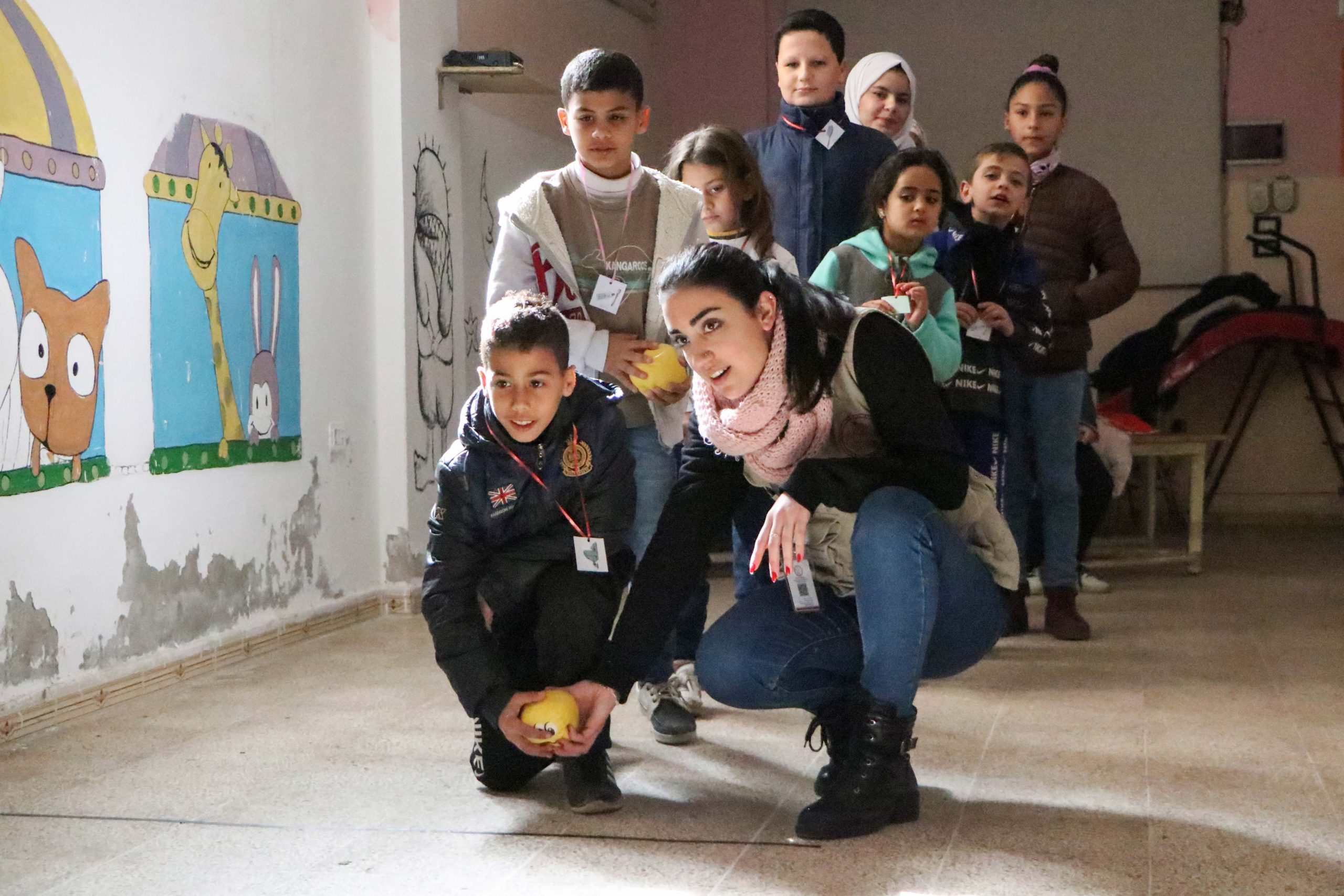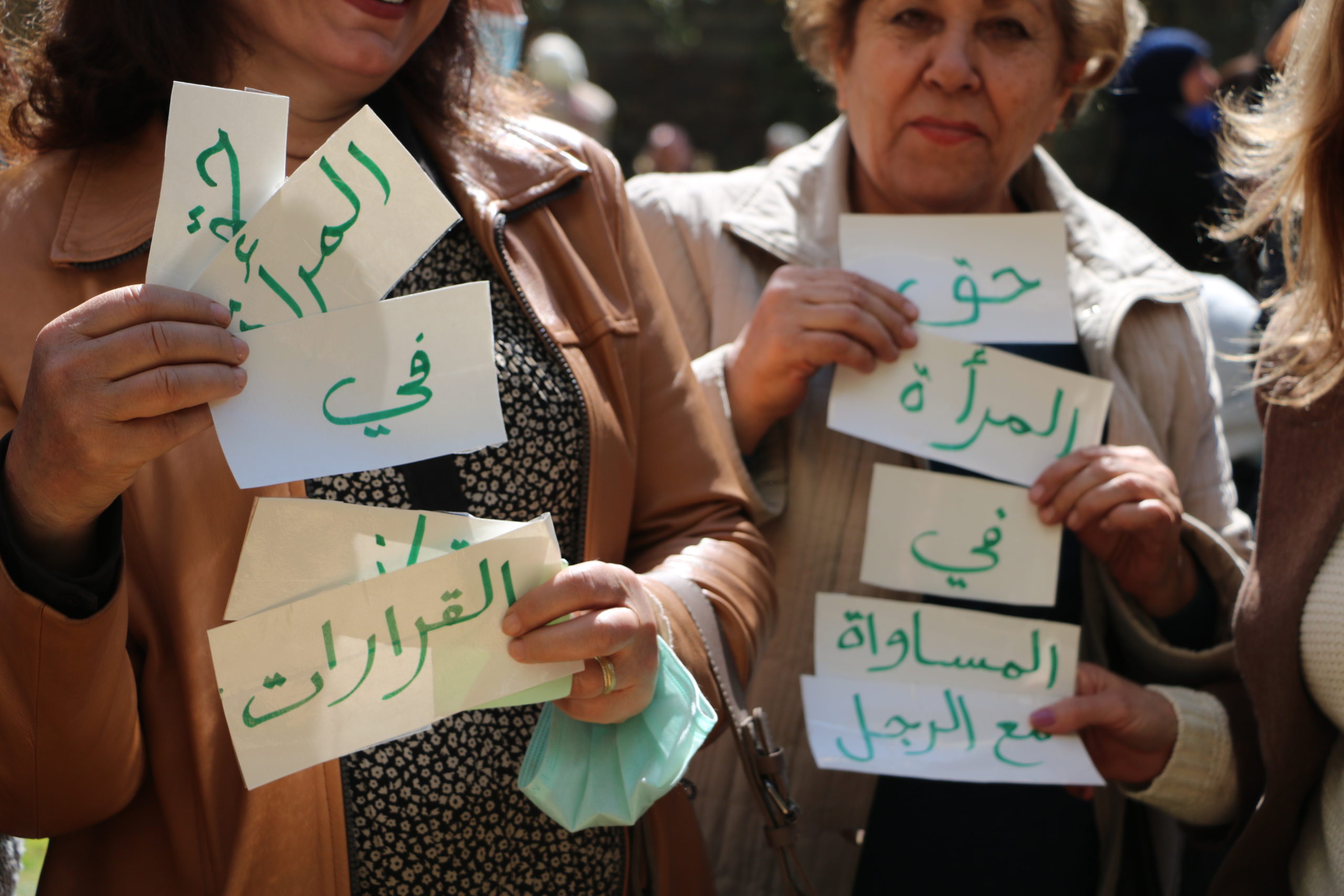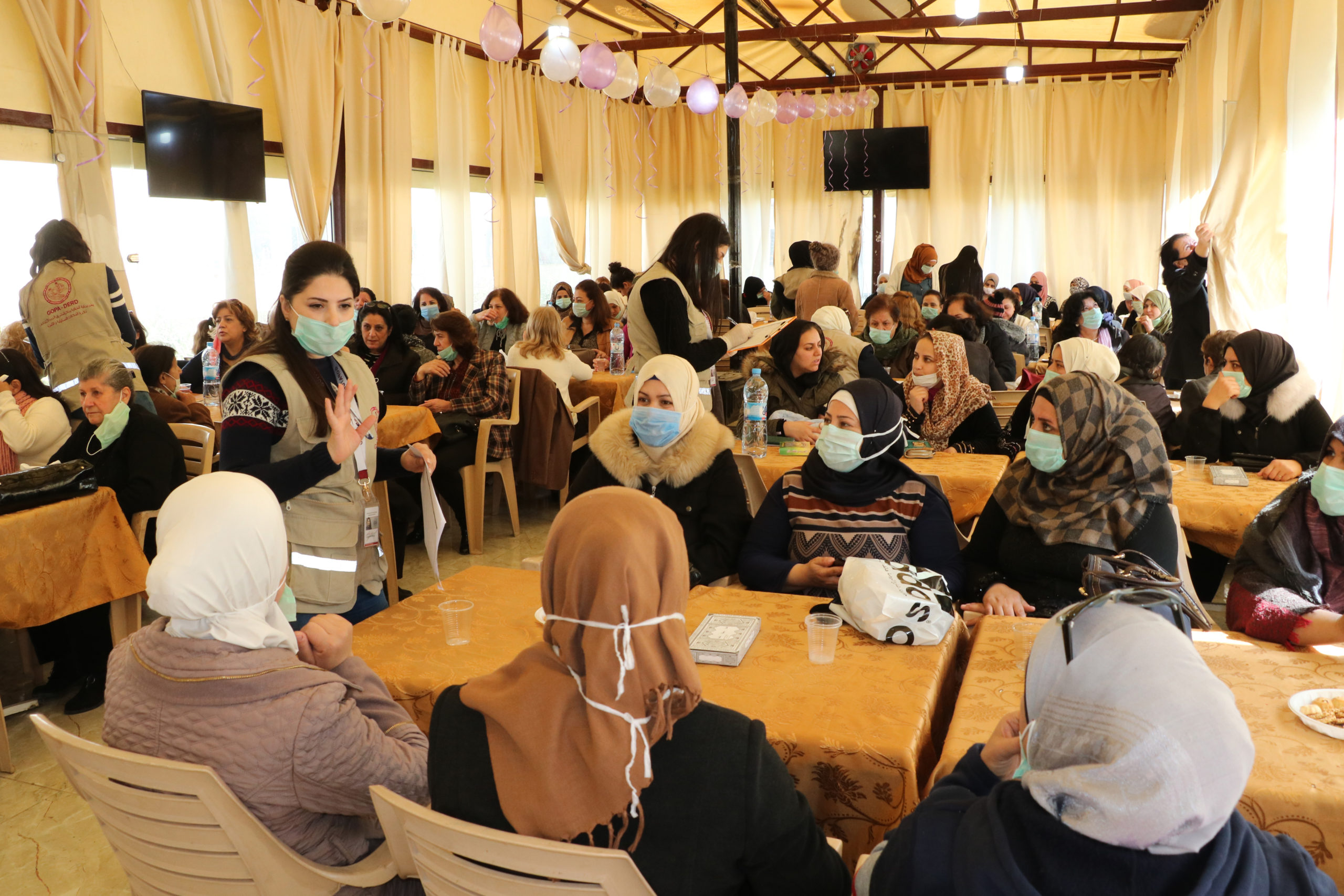Our Programs
- The Community Based Initiative
- The Community Based Organisations
- Shelter program
- WASH Program
- Distribution program
- Education program
- Livelihood programs
- Rents program
- The Hygiene Promotion Program
- Health program
- Protection programs
The Community Based Initiatives Program
The program’s team supports the initiatives stemming from the affected communities’ needs. They do so, by responding to their needs in a participatory way, in order to develop their members’ capacities, encouraging them to be more involved in society. During carrying out any initiative, GOPA-DERD’s team supervises the chosen volunteers from the host community, in order to accomplish the activities included in the initiative to achieve the highest possible benefit towards the host community.
The Community Based Organizations Program
Through this program, GOPA-DERD targets Syrian organizations and associations by presenting financial support to them, in order to plan and to implement non-profit projects, which would benefit the social strata. The organizations and associations present studies about their projects to program’s team, which assists the associations in finalizing their own project proposal, then exhibiting it to a specialized jury who, in turn, evaluates these projects based on certain criteria such as the number of addressed beneficiaries, the project’s sustainability and community’s needs.
The Shelter Program
The program contributes in assisting the refugee and IDP returnees and affected persons or those who are willing to return to their houses in their towns of origin. This takes place through the implementation of complete restoration and rehabilitation of the health facilities in shelters and private apartments to motivate families for a faster return.
WASH Program
WASH is considered as one of the essential humanitarian relief programs that are implemented by GOPA-DERD. Its activities include the implementation of projects that aim at providing alternative sources of water, by drilling, cladding and equipping wells throughout Syria, especially in affected regions witnessing displacements caused by the crisis. In addition to providing water pumping stations with generators.
The program also distributes water tanks as well as water purification filters to provide safe and healthy potable water to affected people and refugee and IDP returnees’ families, in addition to conducting health awareness sessions.
The Distribution Program
This program provides food and non-food items, to contribute in alleviating the financial burdens on the affected people, refugees and IDP returnees, who are suffering of difficult livelihood conditions.
The distribution process includes food items, miscellaneous kits: such as health/medical kits, stationary kits, feminine hygiene kits, bedding and kitchen kits, in addition to winterization kits, special kits for new born babies, and in-kind kits.
The Education Program
The program’s team aim at building the student’s skills in order for him/her to become an active member in society. The program’s team organizes literacy courses for adults, as well as summer and winter remedial sessions for drop-out students of the Secondary and High School certificates. In addition, the team follows up with transitional classes at the Elementary and Secondary schools. In addition, the program participates partially in the payment of the affected and refugee and IDP returnee students’ school fees, with the purpose of alleviating the financial burden placed upon their parents or on themselves
The activities of the Summer Schools, which are being implemented for Elementary and Secondary students, are considered as one of the primordial activities that participate in the restoration of the student’s essential curriculum information, in addition to the development of their artistic, creative and motor skills.
Livelihood
The Vocational Training Program
GOPA-DERD’s Livelihood team organizes Vocational Training courses according to beneficiaries’ and market needs, such as cosmetology, sewing, electronic devices maintenance, cooking, just to mention a few. In addition to providing specialized courses in languages, management sciences and computer skills.
According to the selection criteria, the best beneficiaries are chosen and introduced to the work environment, where they are being prepared and supported to obtain temporary or permanent jobs, in accordance to market and beneficiary’s needs. However, the beneficiaries who have proven commitment during the courses along with other criteria are entitled to receive a tool-kit.
Small Business Grants Program
The program aims at assisting refugee and IDP returnees, and affected Syrians aged between 18 and 60 years, in obtaining a grant, in order to start and benefit from their own project. Also, this project would provide beneficiaries with necessary managerial skills that would assist them in presenting complete feasibility studies about their proposed projects. These projects would later be submitted to a specialized jury, who will in turn study it and pick the best projects to be financed according to certain criteria such as its ability to be implemented and remain sustainable.
Cash/Voucher Assistance Program
GOPA-DERD views Cash/Voucher Assistance program as a short-term solution to inadequate livelihoods faced by those most in need and vulnerable populations. Due to continuous crisis caused by military unrest, economy, and pandemics, refugee and IDP returnees Syrian households are constantly threatened by basic needs-related risks: unmet health, shelter and food security needs (especially of elderlies and people with disabilities), adult and adolescent men’s exposure to degrading/hazardous jobs, child labour, women and girls’ double burden, and high level of debts. To respond to these protracted needs, this program aims to provide life-sustaining assistance through multipurpose cash assistance (MPCA).
The Rents Program
This program’s goal is materialized in the assistance of displaced and refugee and IDP returnees’ Syrian families, by covering their rent’s payment for a certain period. This is implemented through field visits carried out by the program’s team, to evaluate the families’ financial situation, in order to help those most in need.
The Hygiene Promotion Program
The program’s aim is to promote health awareness regarding a number of common chronic, emerging and infectious diseases, reproductive health and family planning. In addition, the team offers the principles of first aid, and introduces proper nutrition techniques as well as public and private hygiene awareness. It also aims to enhance general hygiene practices and correct wrong behaviours to prevent diseases through awareness sessions and initiatives that include hygiene management during the menstrual cycle, while delivering various hygiene messages to children, mothers, teachers and adolescents in schools and the community.
The Health Program
The Health program aims to improve access to primary or secondary health care for refugee and IDP returnees and conflict-affected patients who cannot afford treatment costs. Health care includes: lifesaving surgeries, treatment of chronic illnesses, conducting a health check-up through blood tests and different types of scans (CT, MRI, X-ray). It also supports pregnant women to access quality ante-natal care (ANC) and post-natal care (PNC) services, as well as financing deliveries for pregnant women under, all under specialized supervision. In addition, the program provides medication for: chronic illnesses, cancer treatments and immunosuppressant, in addition to the provision of wheelchairs and walking aids. Another important target of the Health program is supporting health facilities through supplying them with maintenance, medical commodities and large medical equipment: ventilators, echo Doppler, incubators, anaesthetic machines and more.
Protection
The Psycho-social Support Program
The program’s team aims to reach all of the vulnerable and affected family members through activities that enhance their psychological health and that provides them with the needed strategies to deal with the sources of pressure. This would help them to regain their emotional and psychological balance. By doing so, the team aims to implement activities that are in line with the specific age groups, since special activities are designed for children, adolescents, and parents
The Child Protection Program
Believing in the right to protection for every child, the program is established to prevent and response to violence, abuse and exploitation, neglect, harmful practices, violence against children, and to ensure children access to protection services, by establishing or supporting national and community-level child protection support for both host community and IDPs. The program outcomes are achieved by conducting structured and sustained psychosocial support, parenting programs considering family is the first line of protection for children, awareness sessions on child protection (CP), gender based violence (GBV) and Violence against children (VAC) awareness sessions, in addition to the carrying out awareness session on mine risk education (MRE).
The Gender-based Violence Program
GBV program seeks to address violence against vulnerable persons of both genders in humanitarian crisis who are at risk of violence and protect them through conducting awareness sessions and massive media campaigns attached with messages about violence and it causes. The program targets the communities and people in all walks of life in various age categories. Through these different activities, the team observe and consider all the cases that were exposed to violence through carrying out individual consultation sessions and referrals according to each case to provide the needed support and services.
